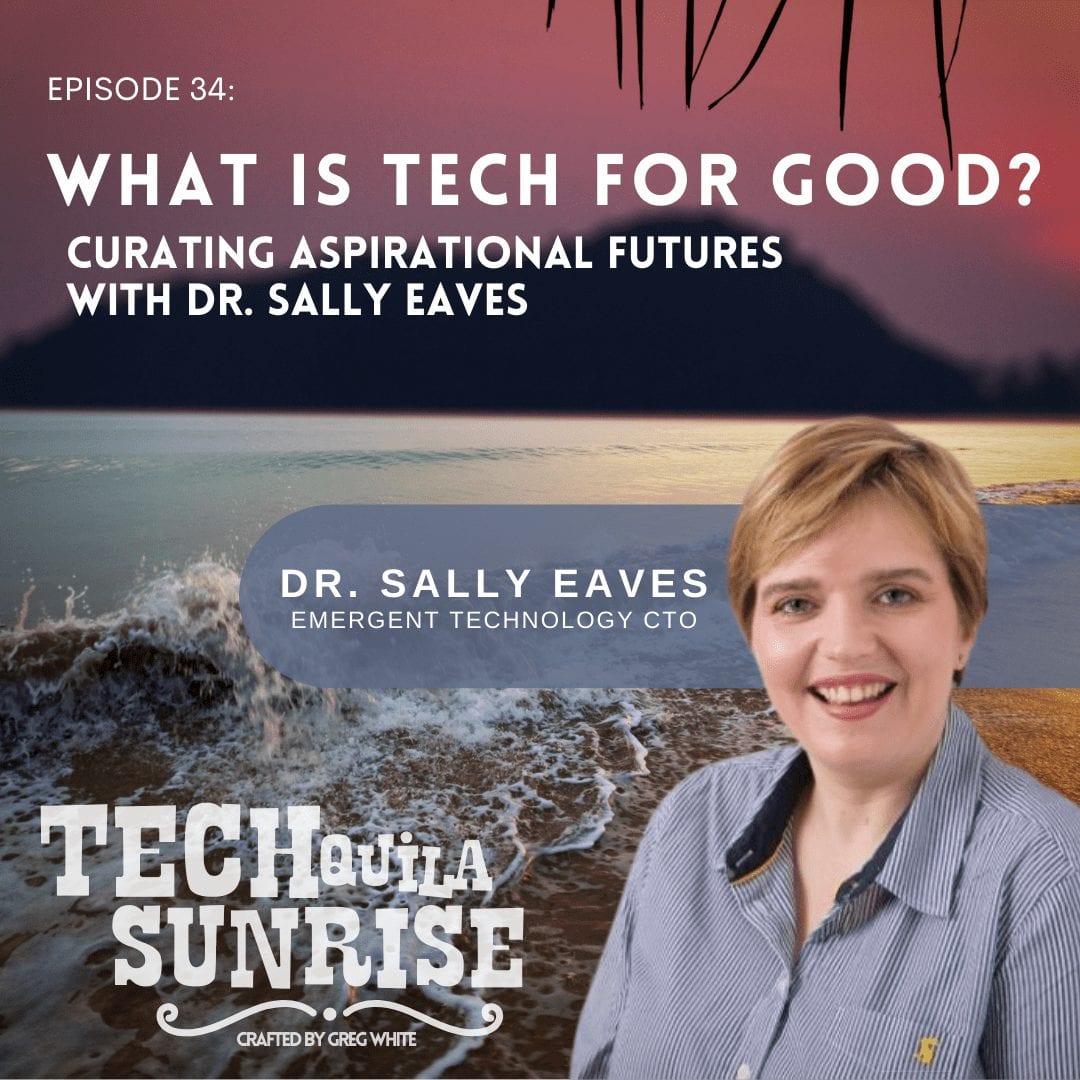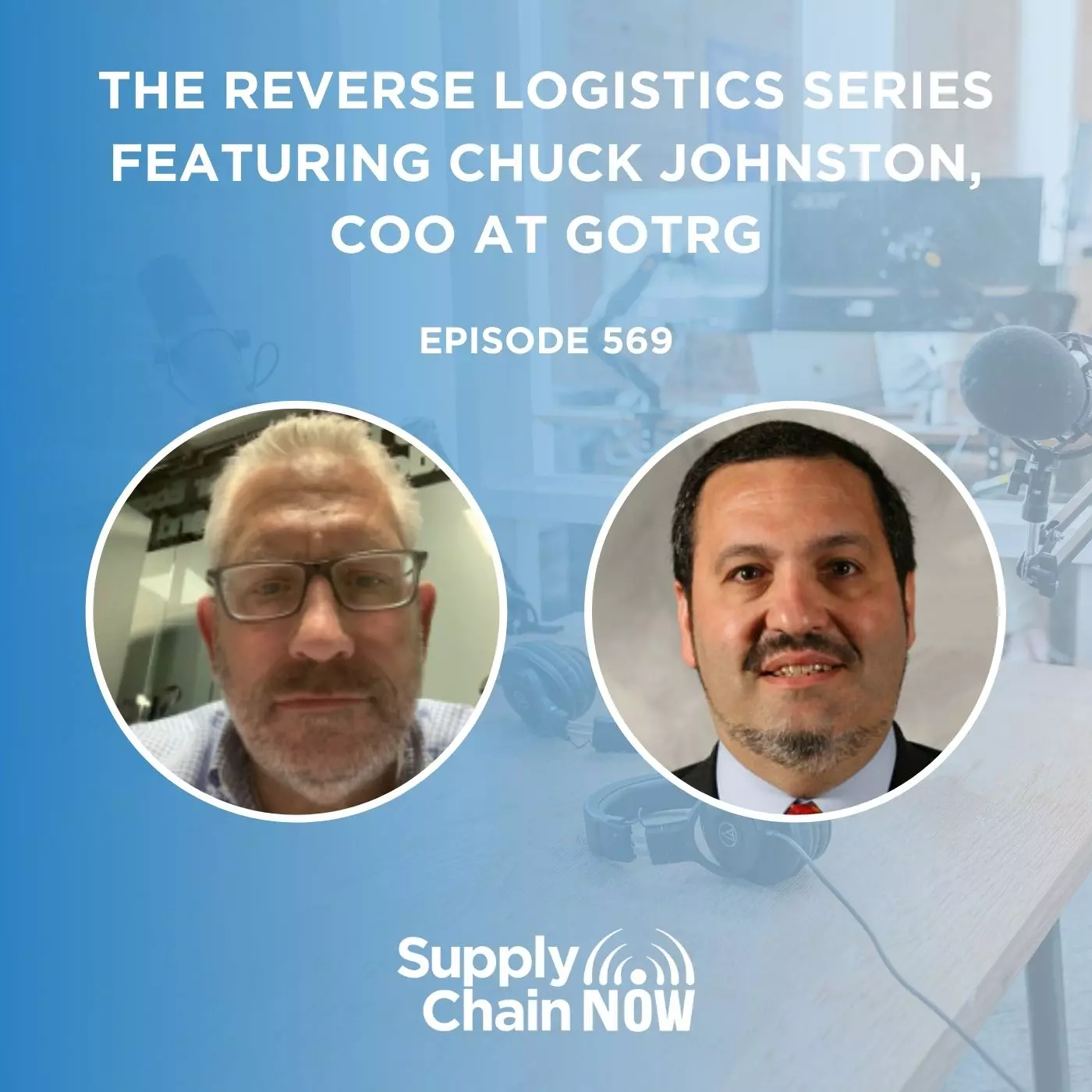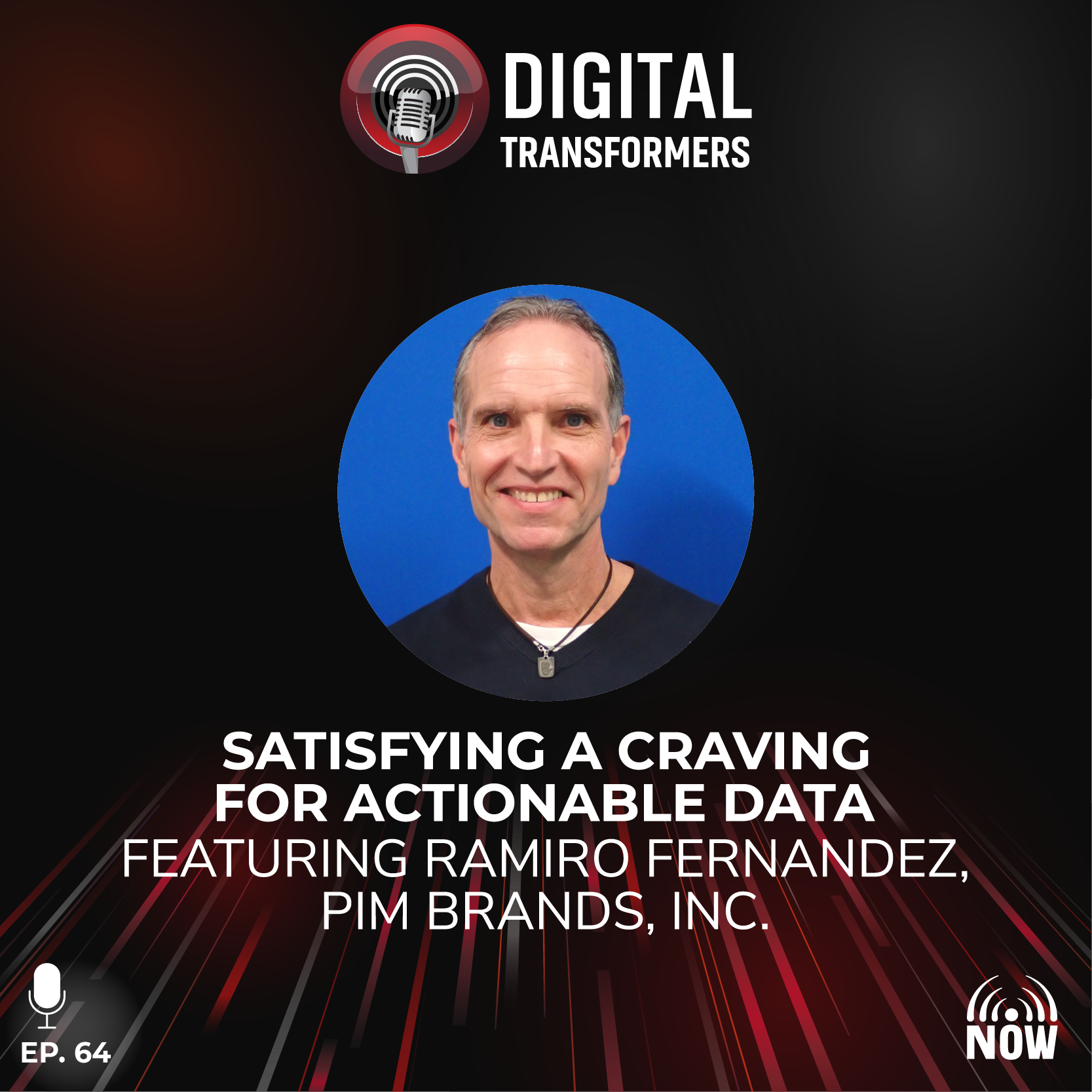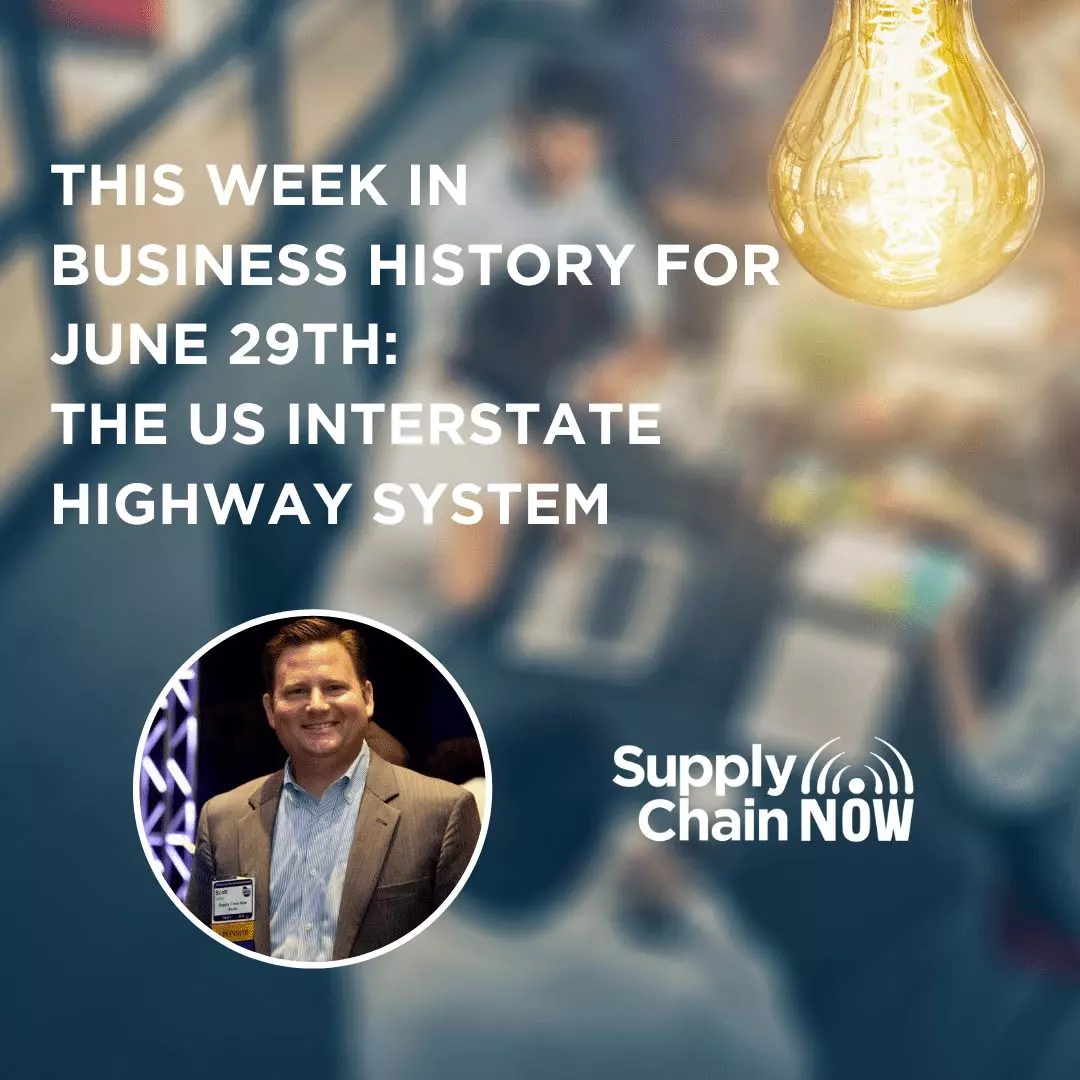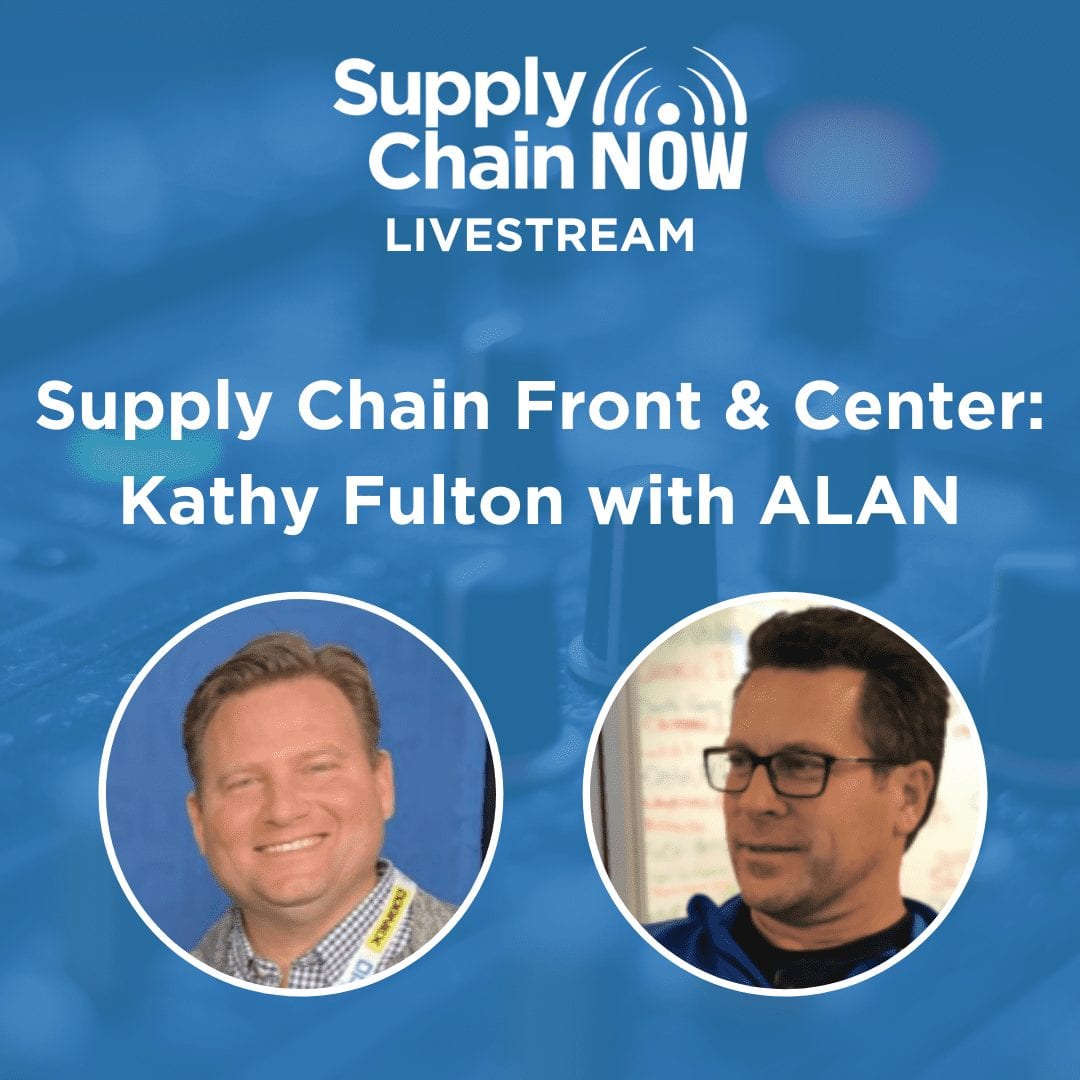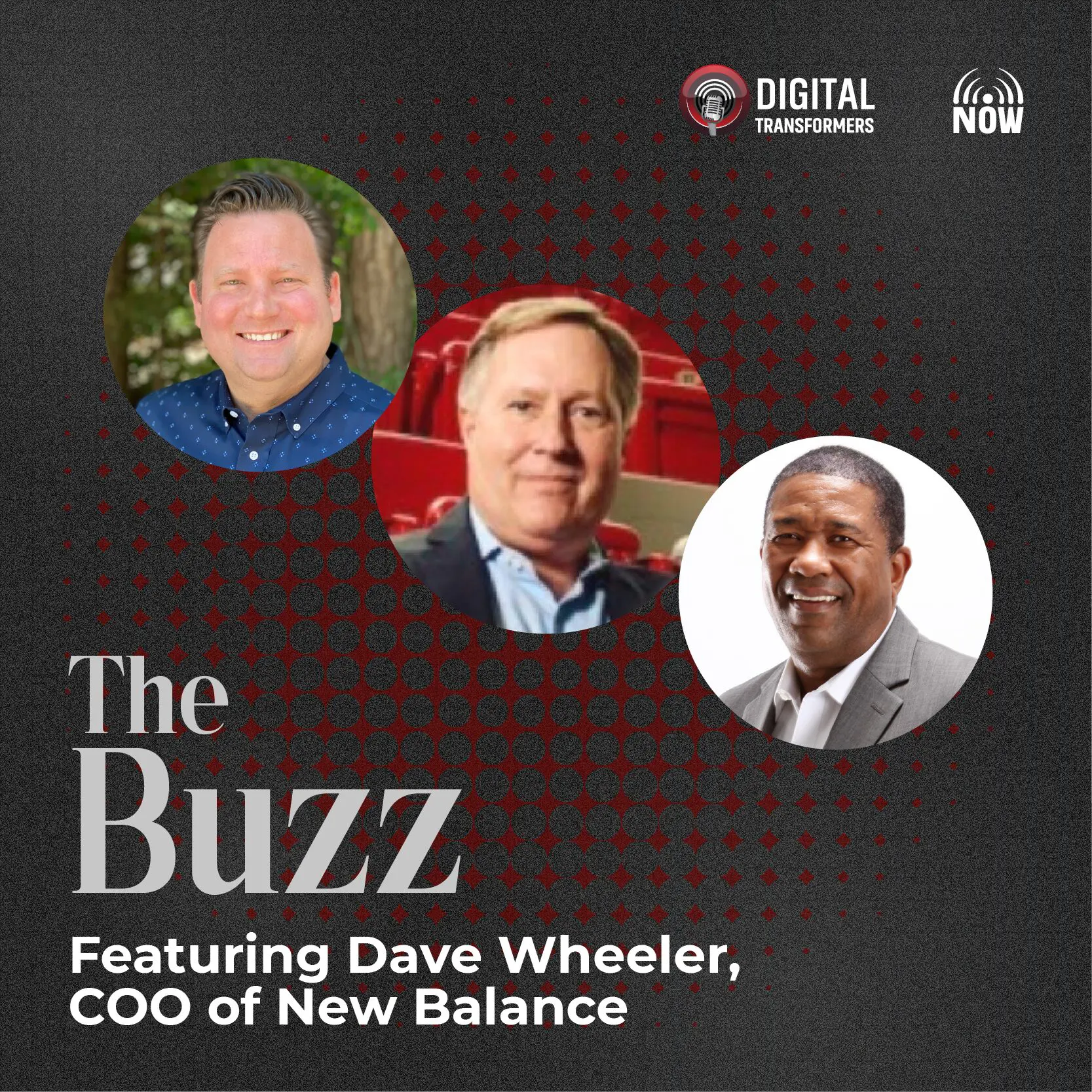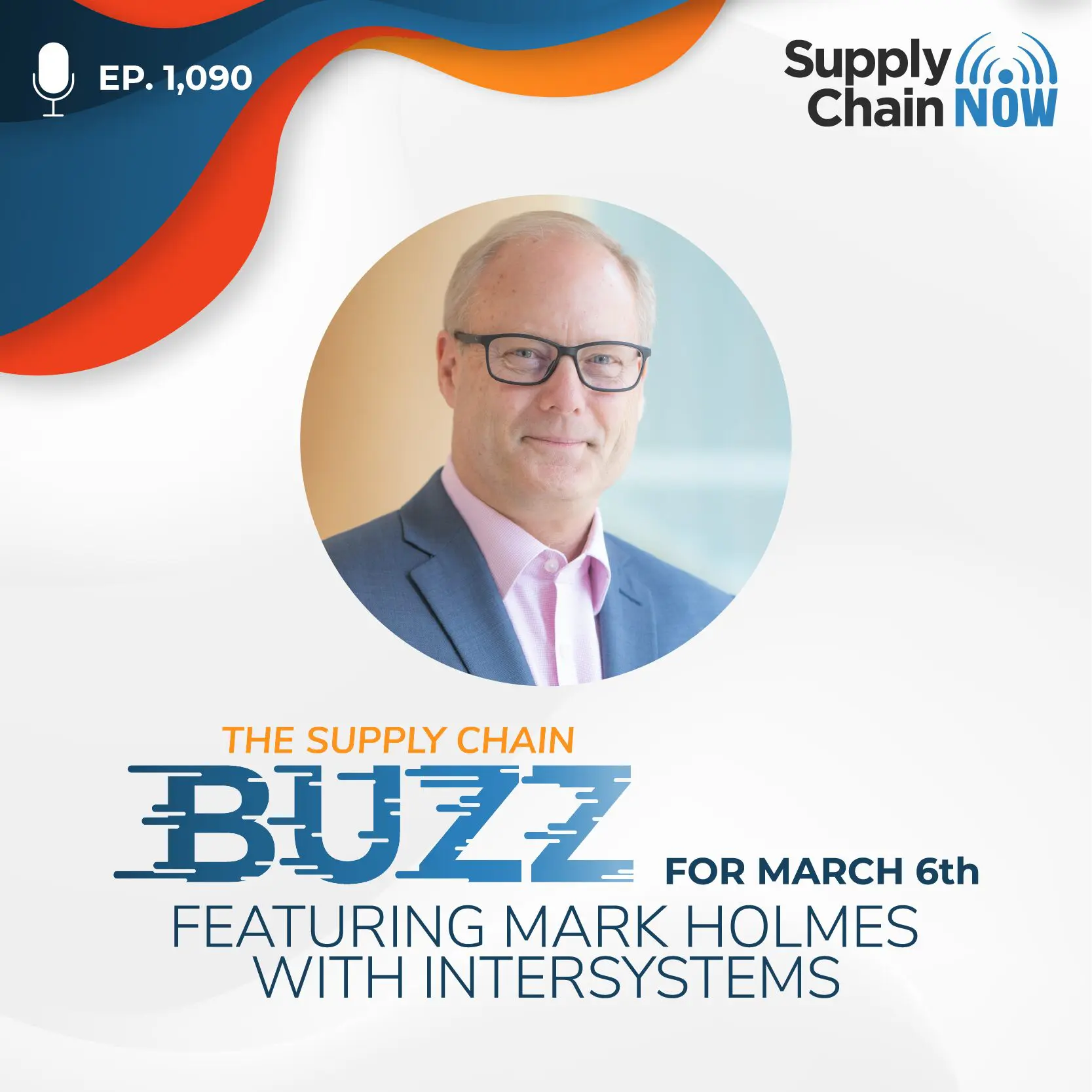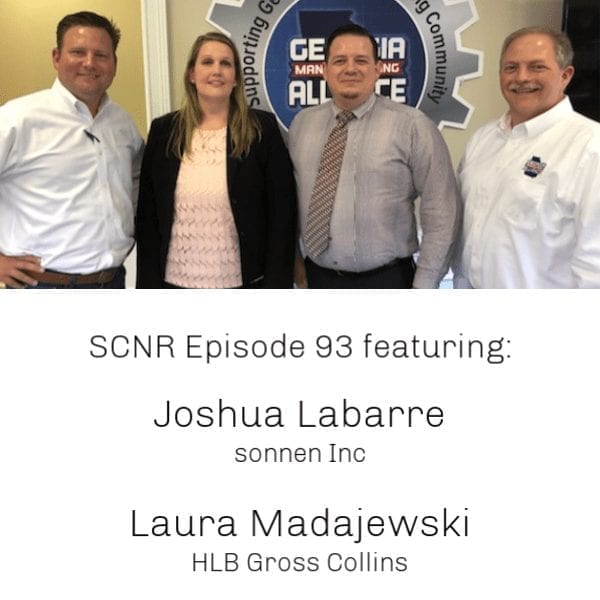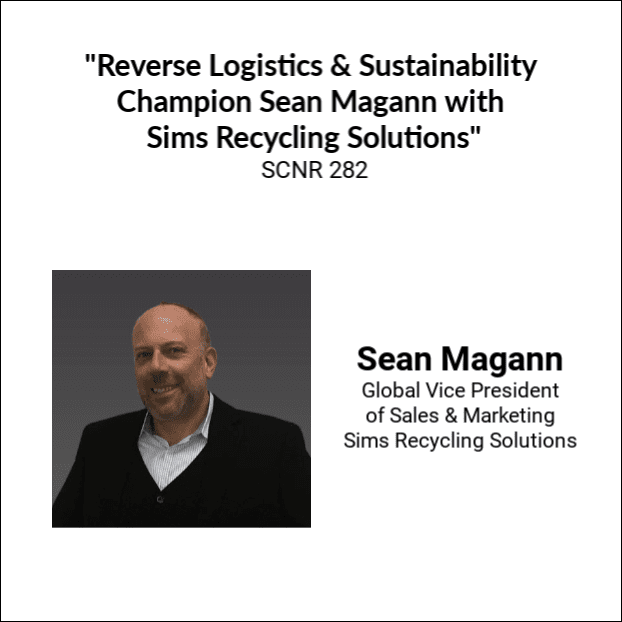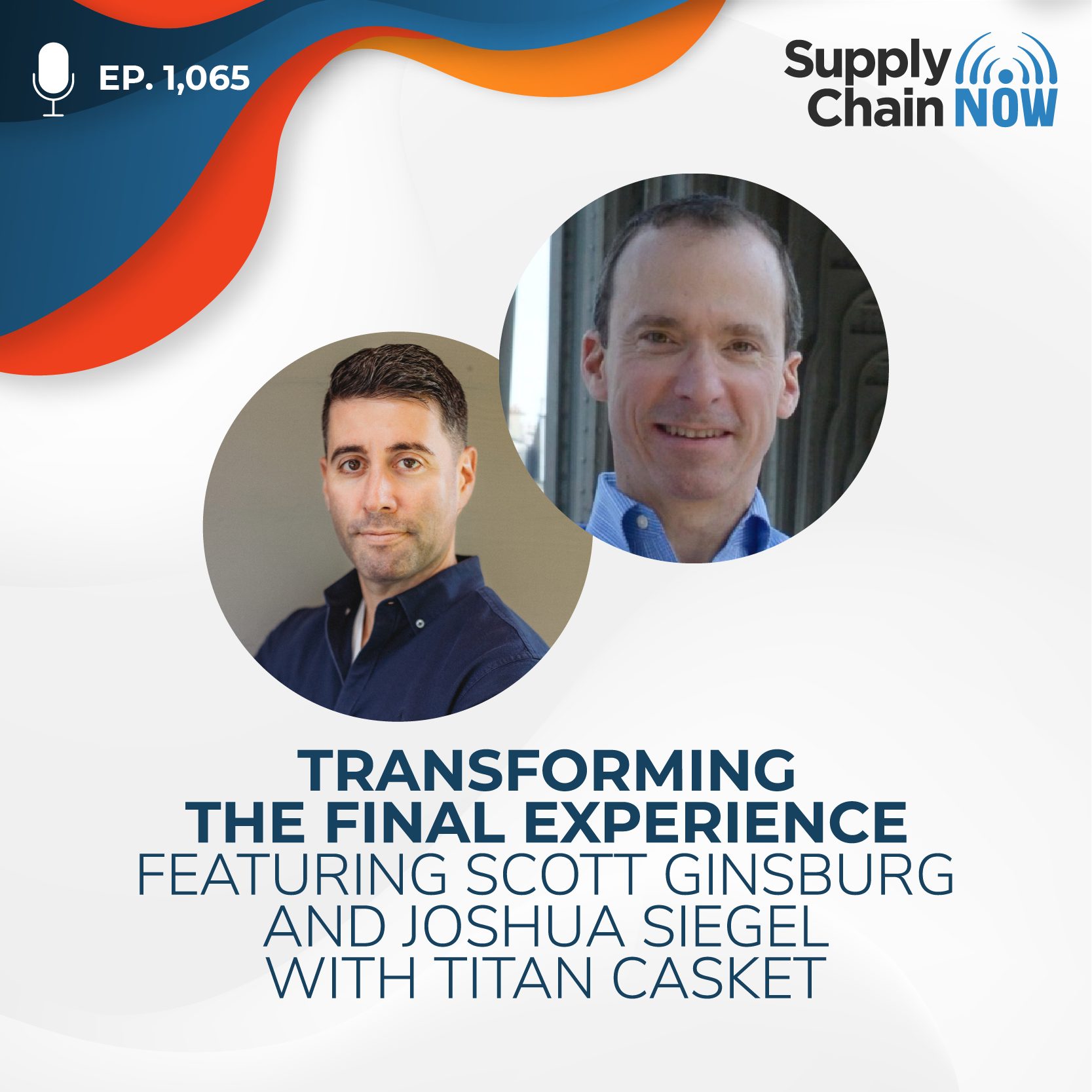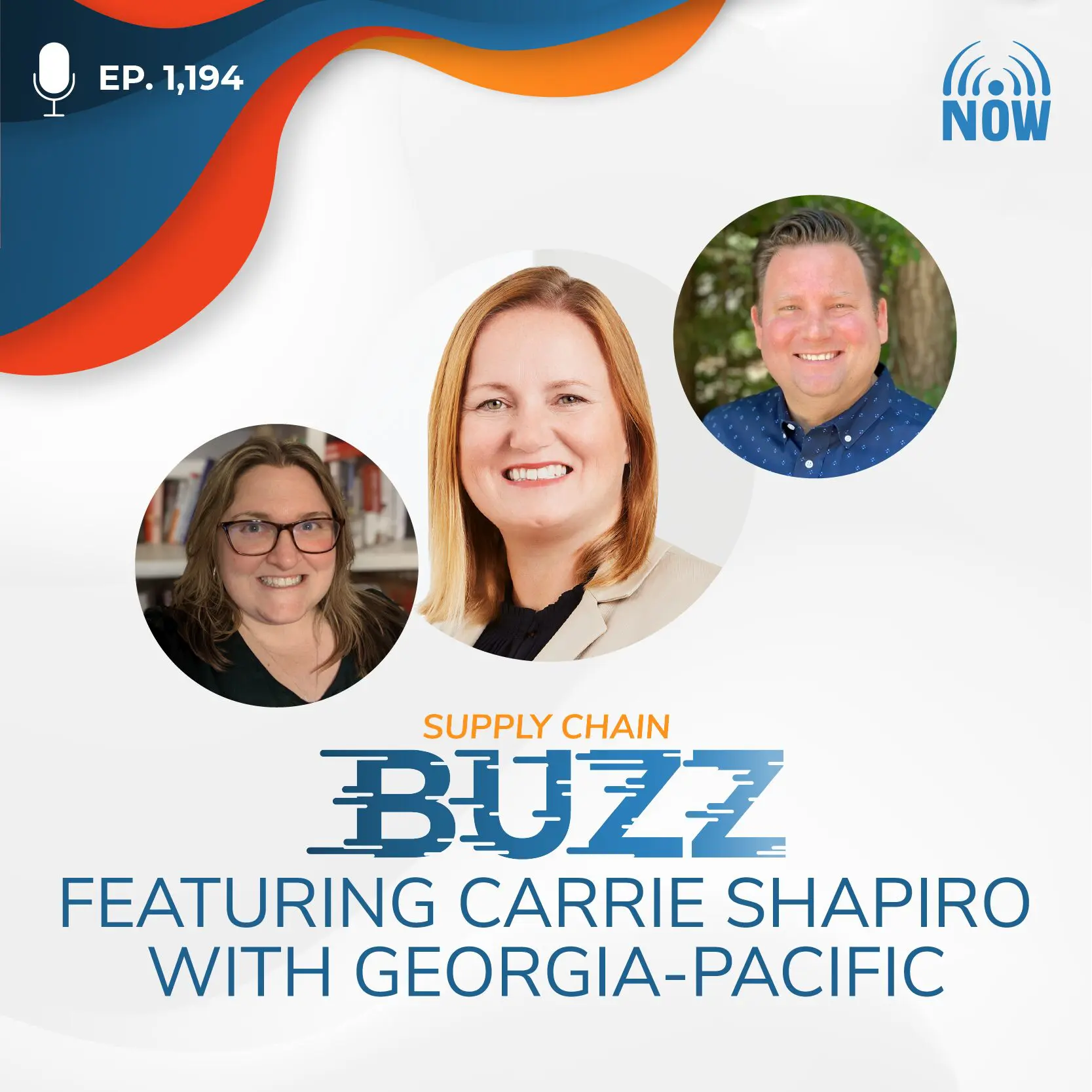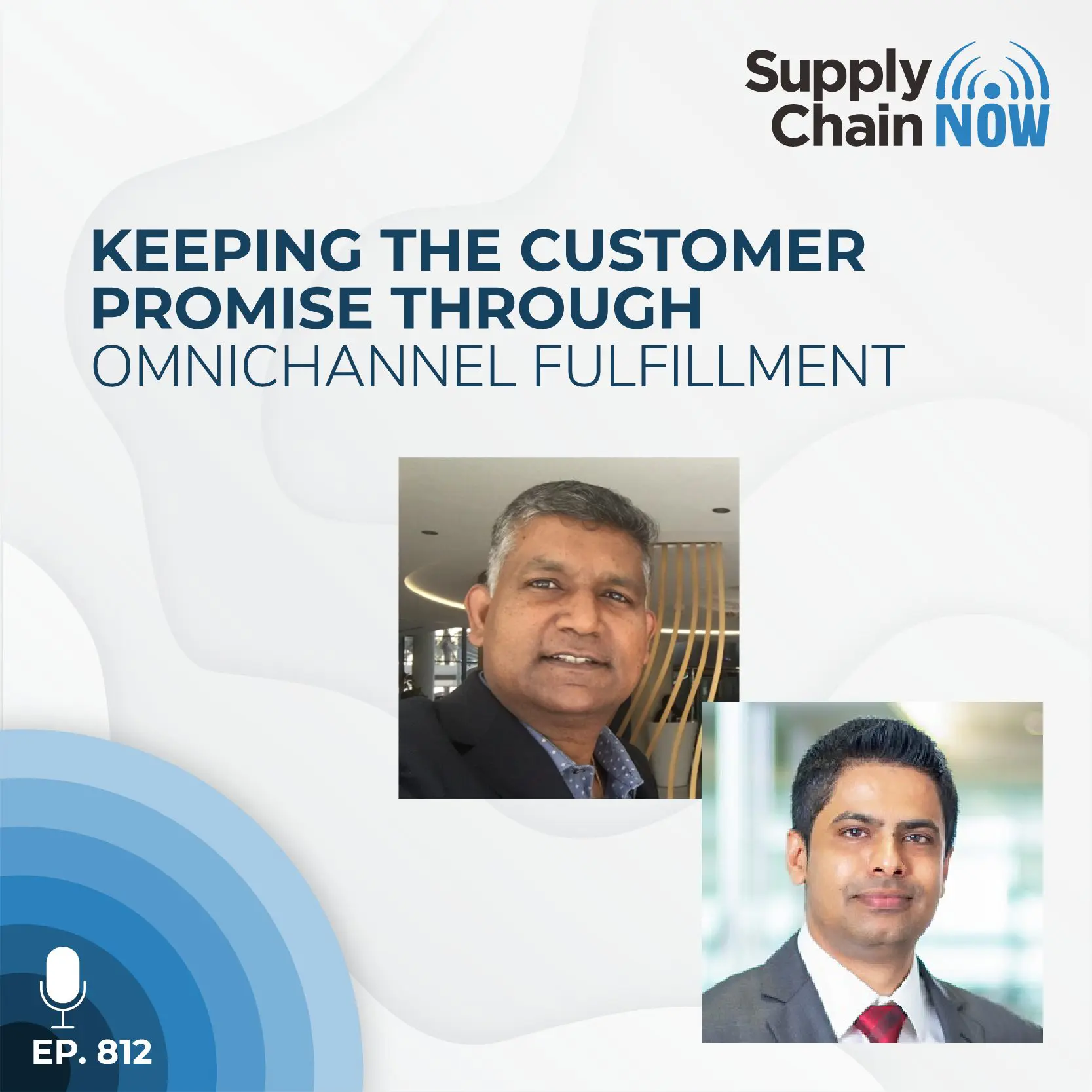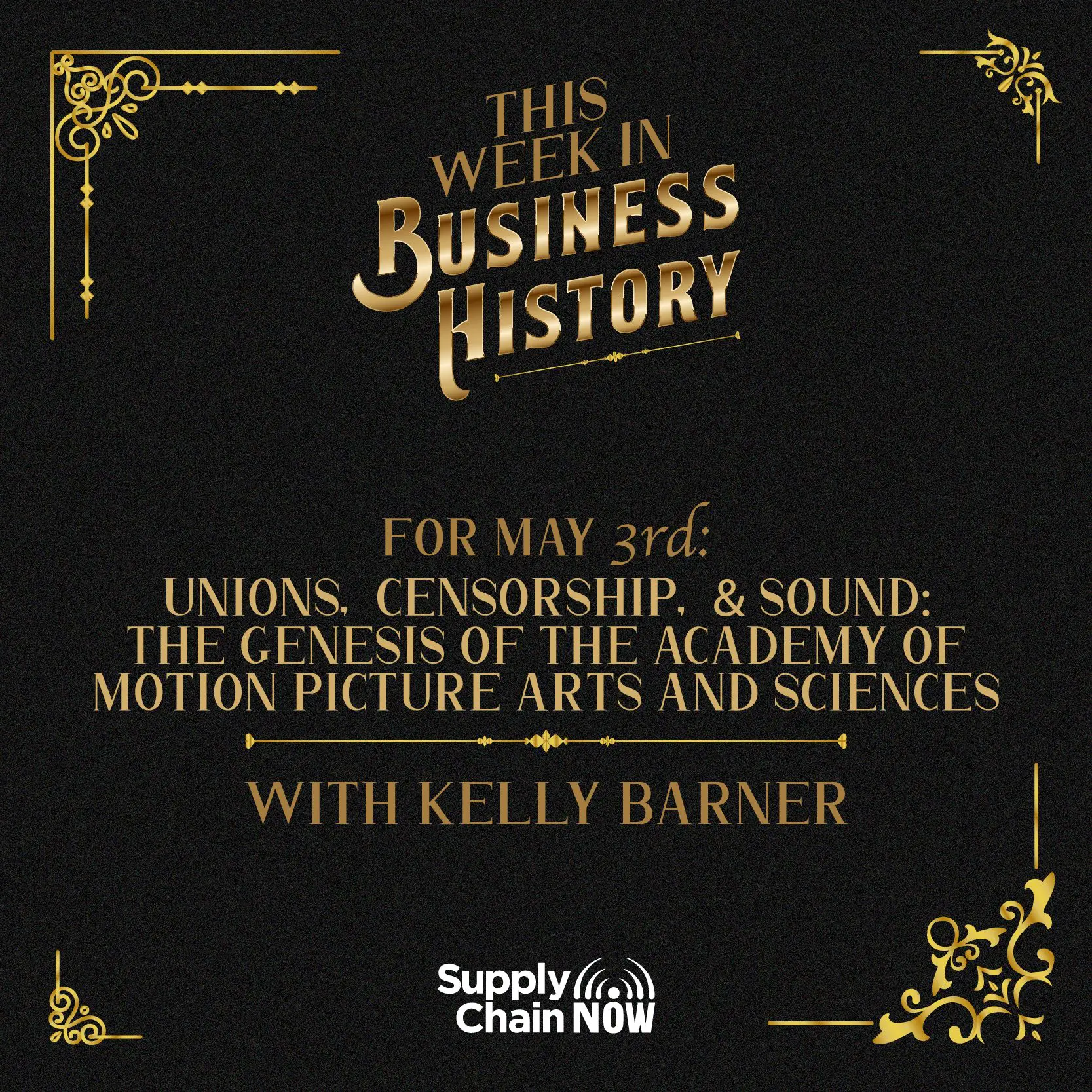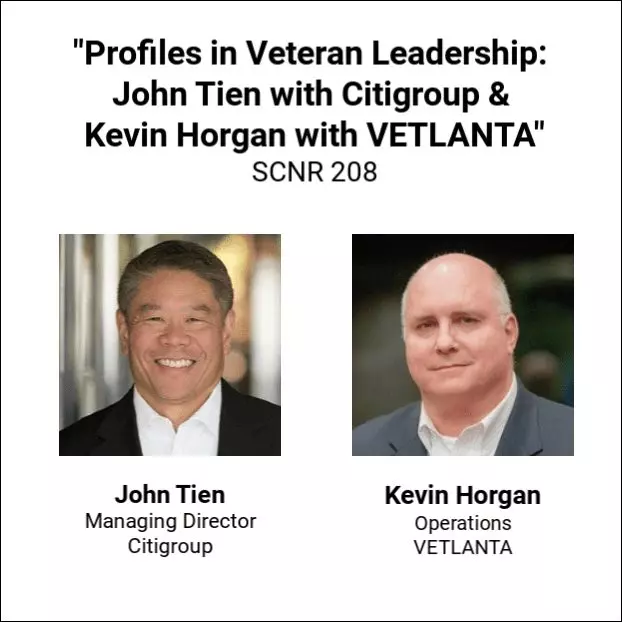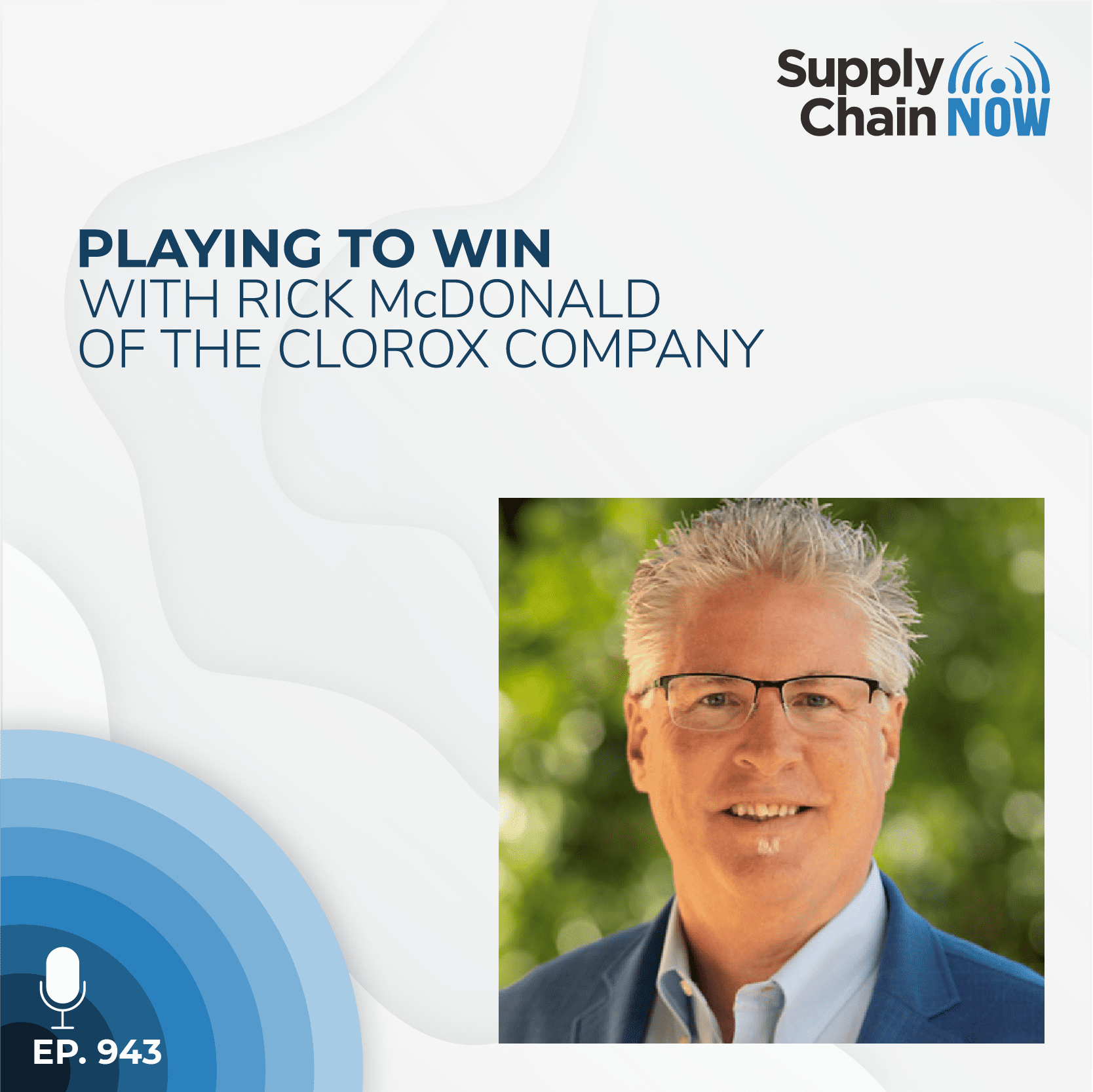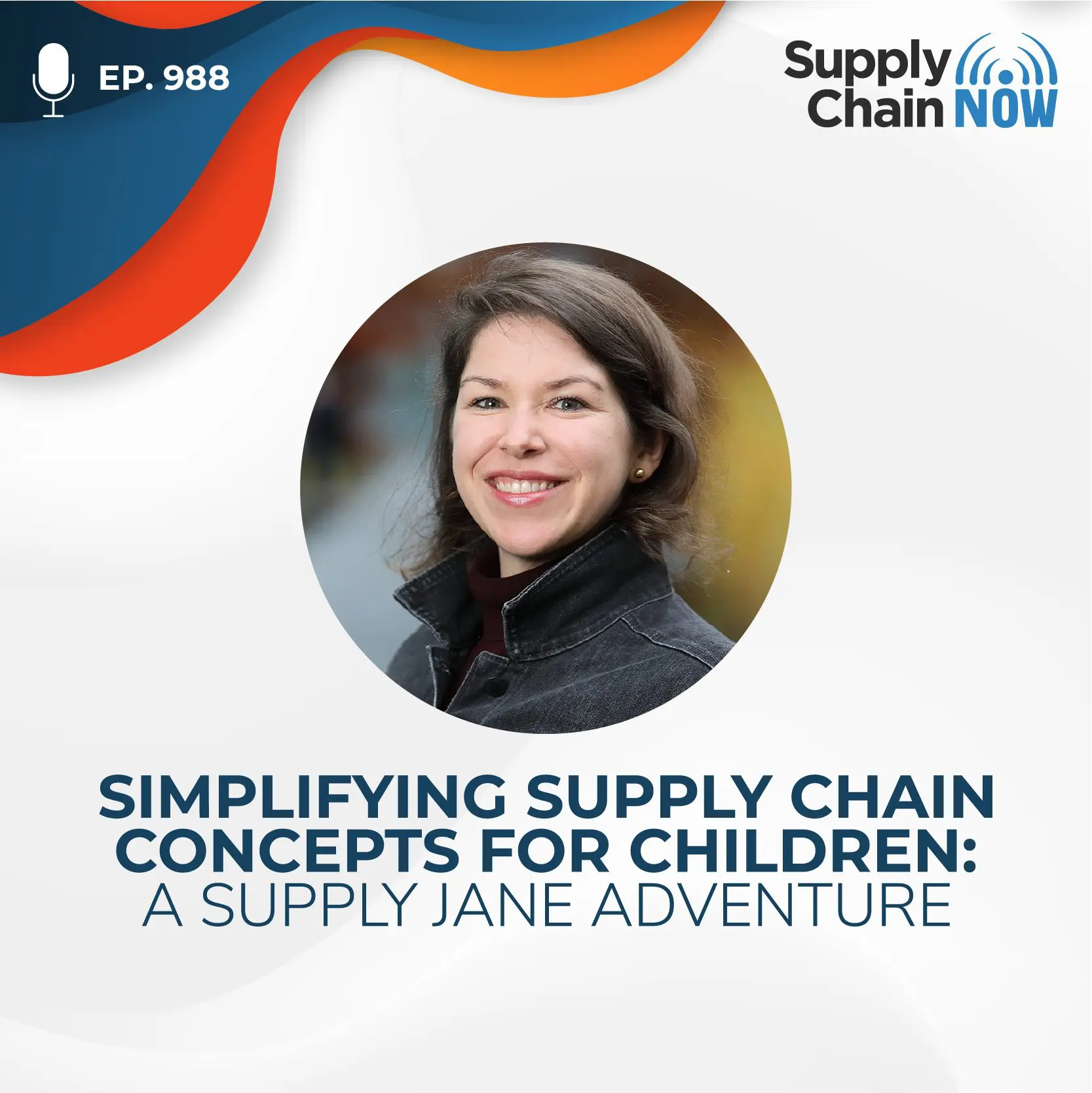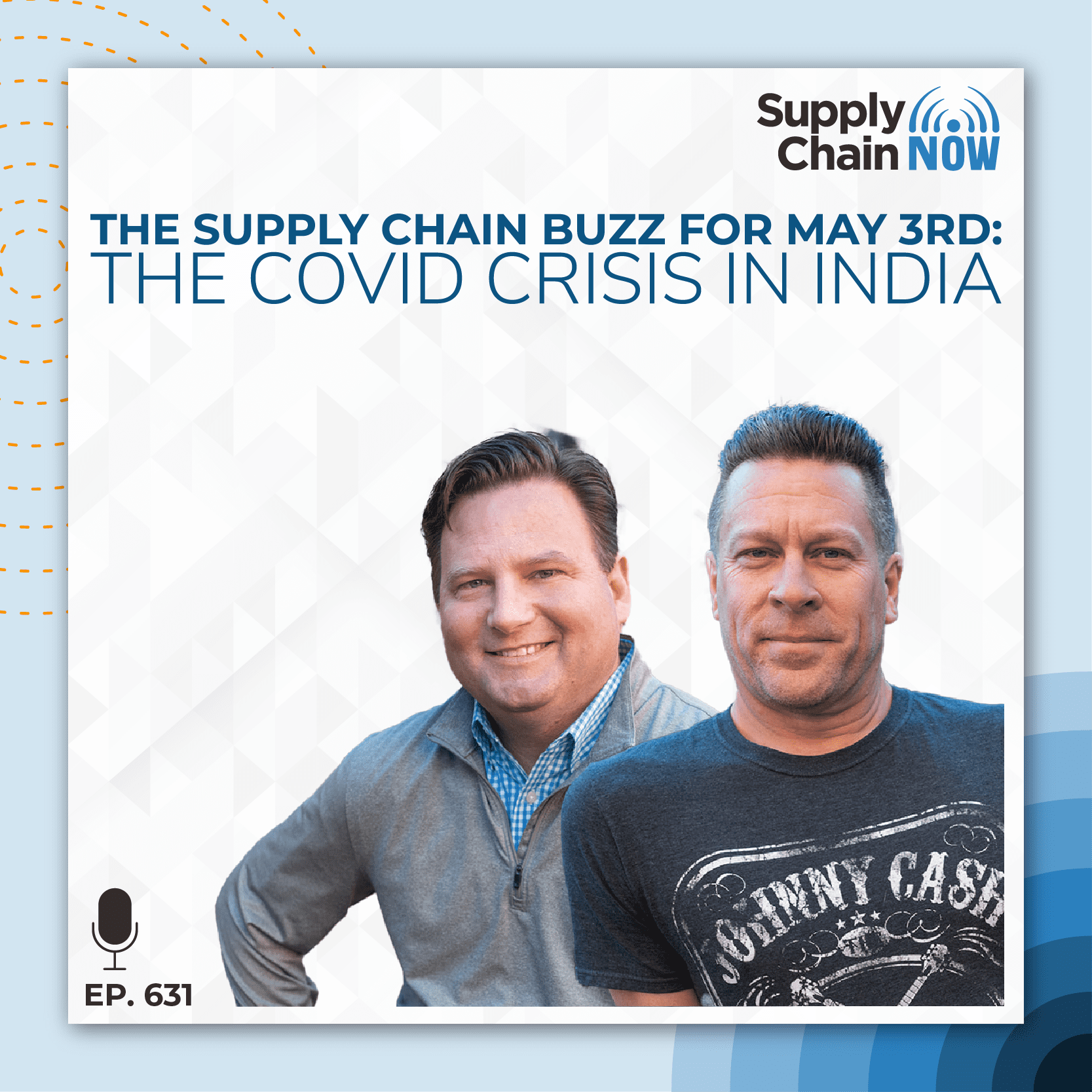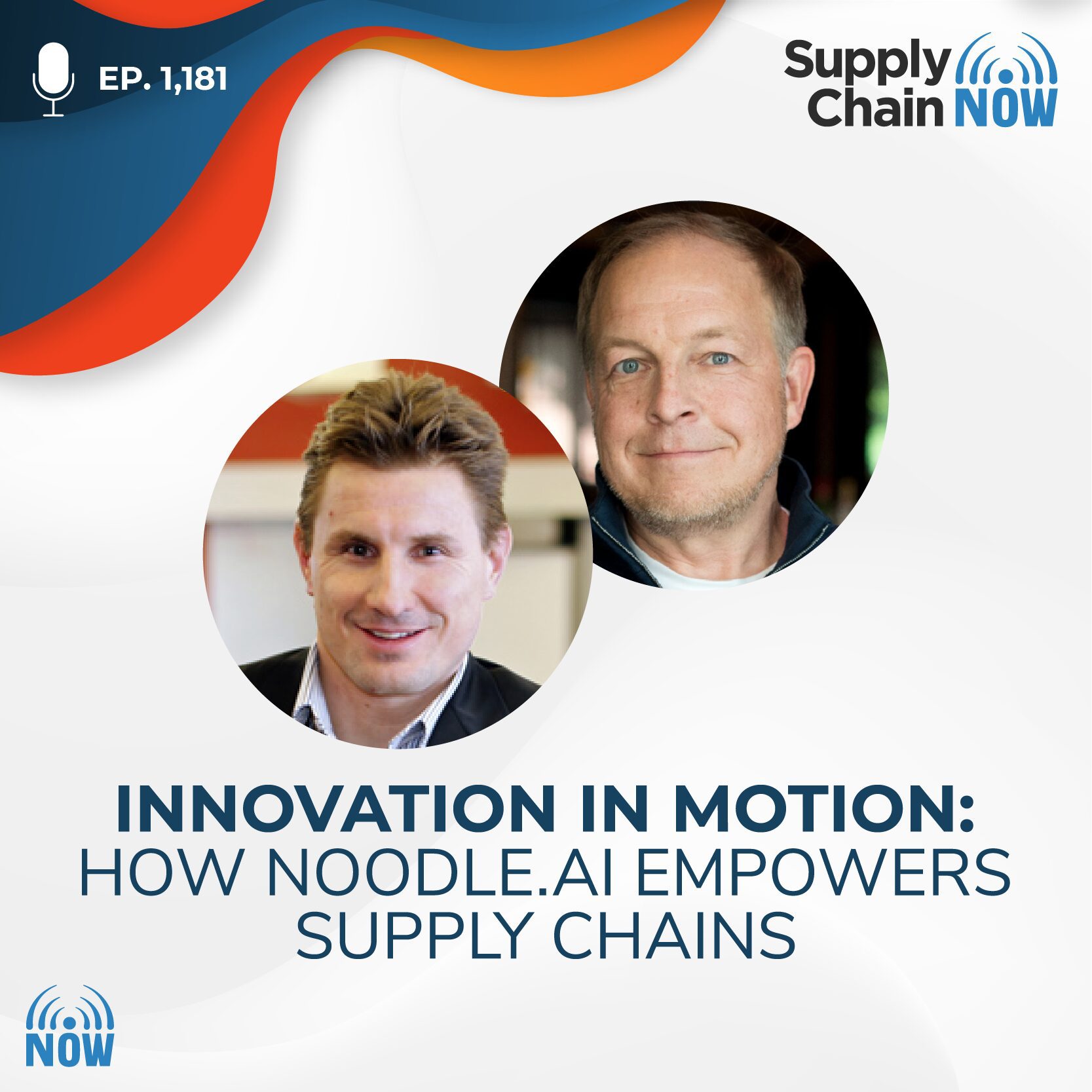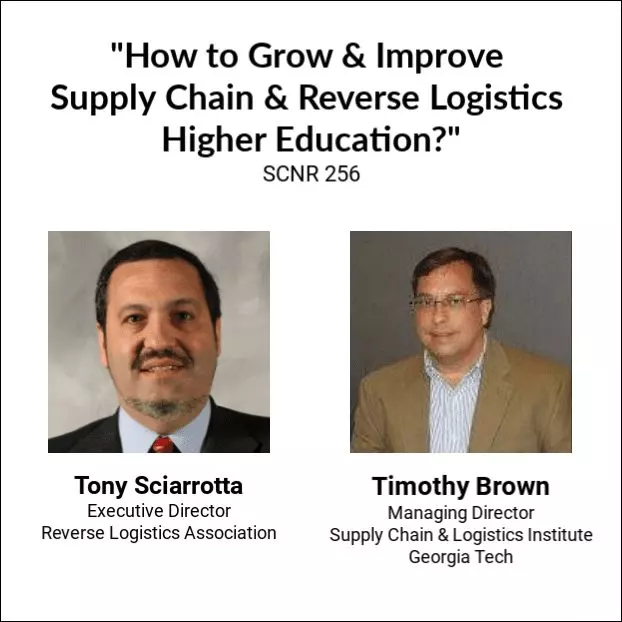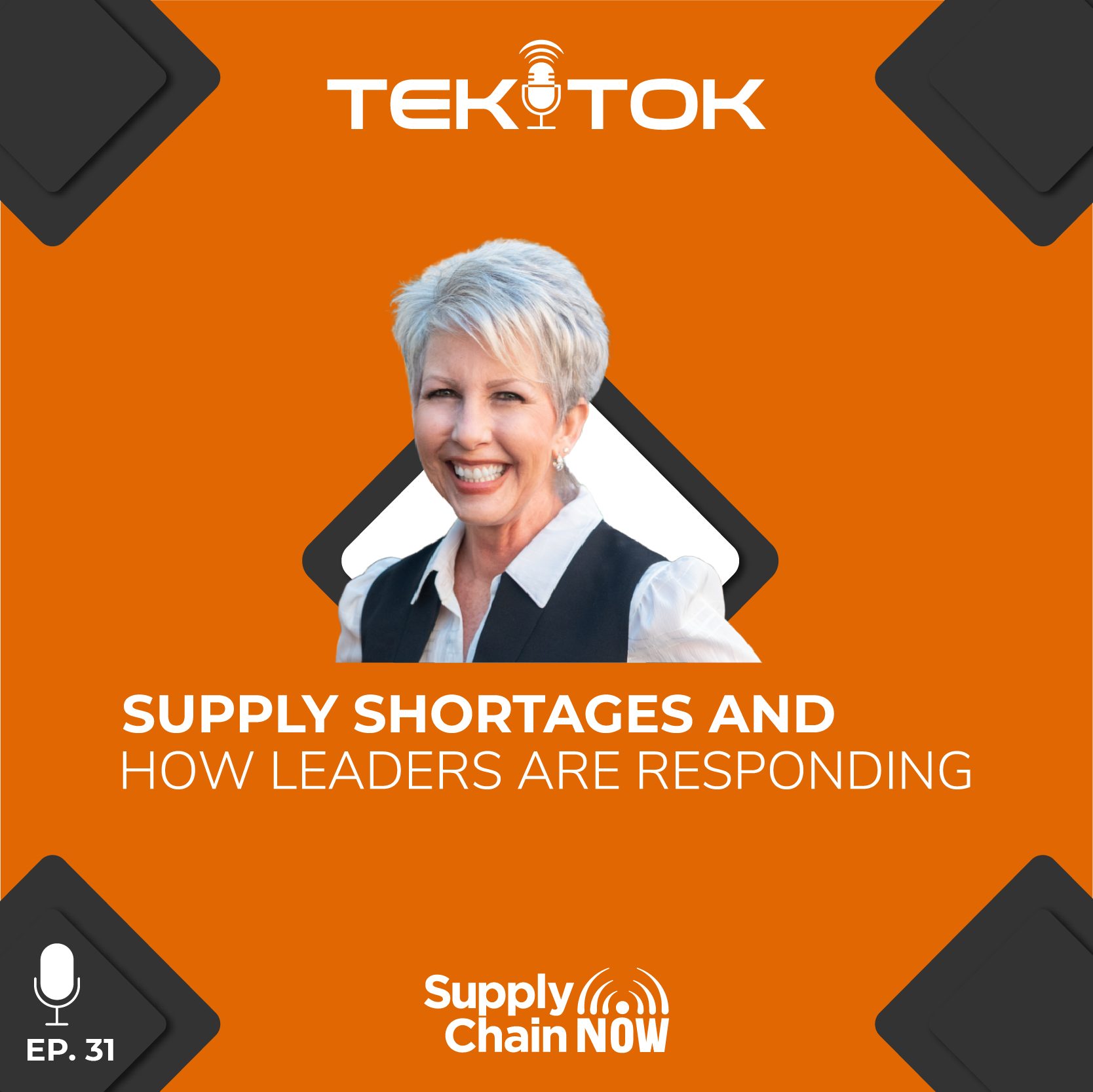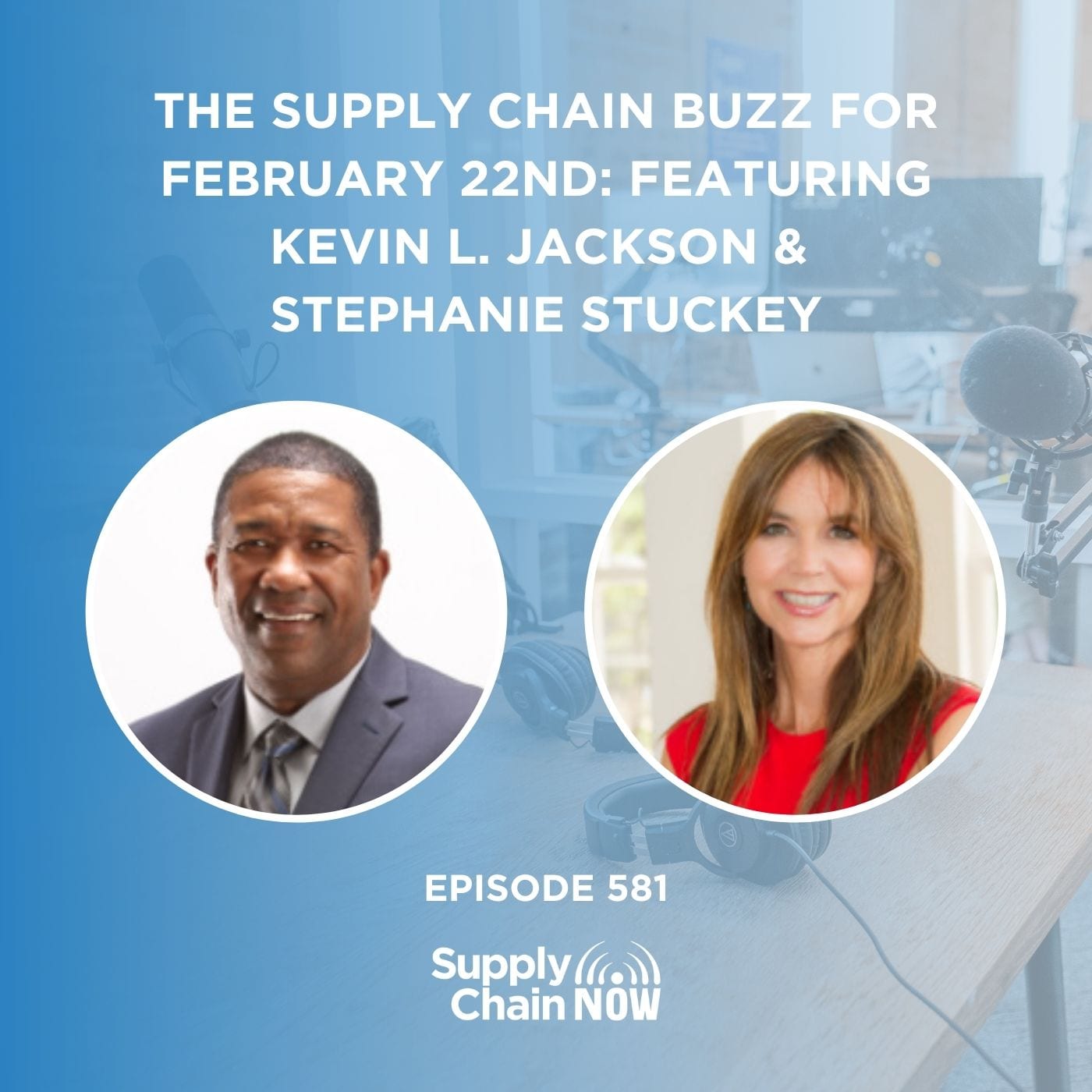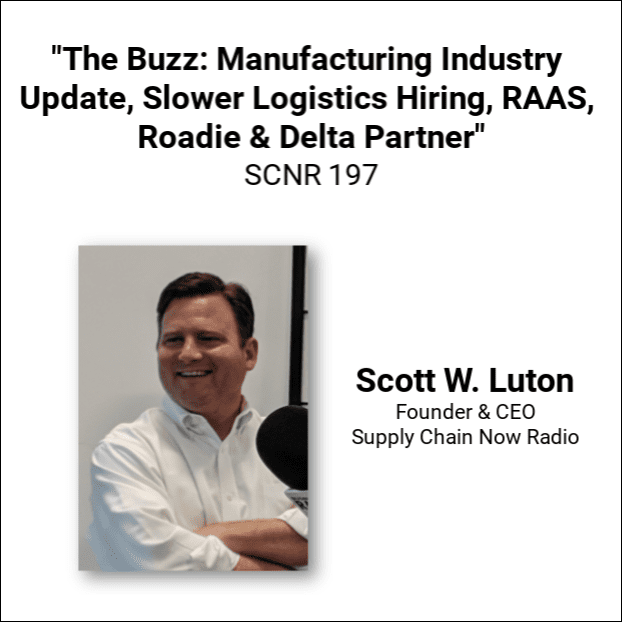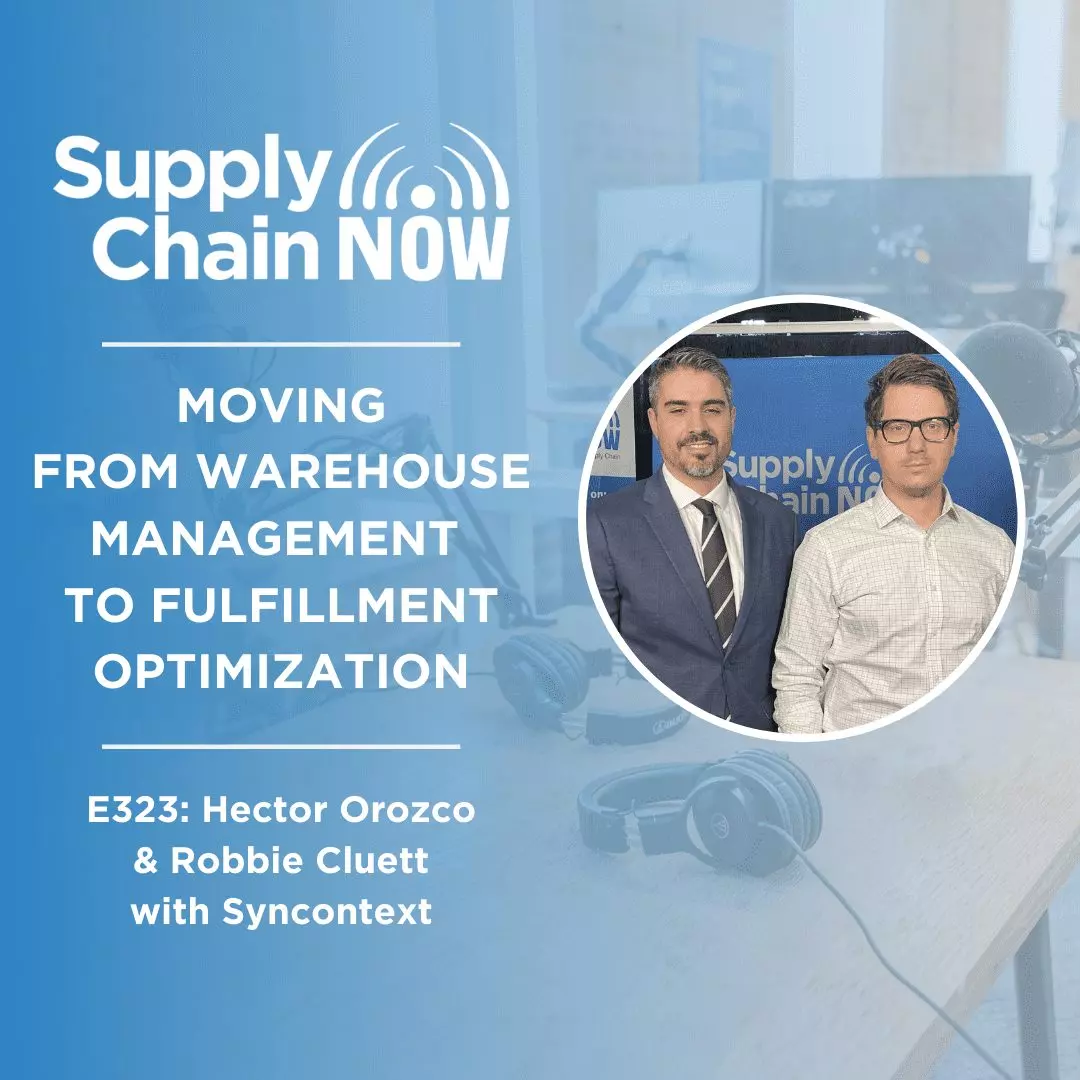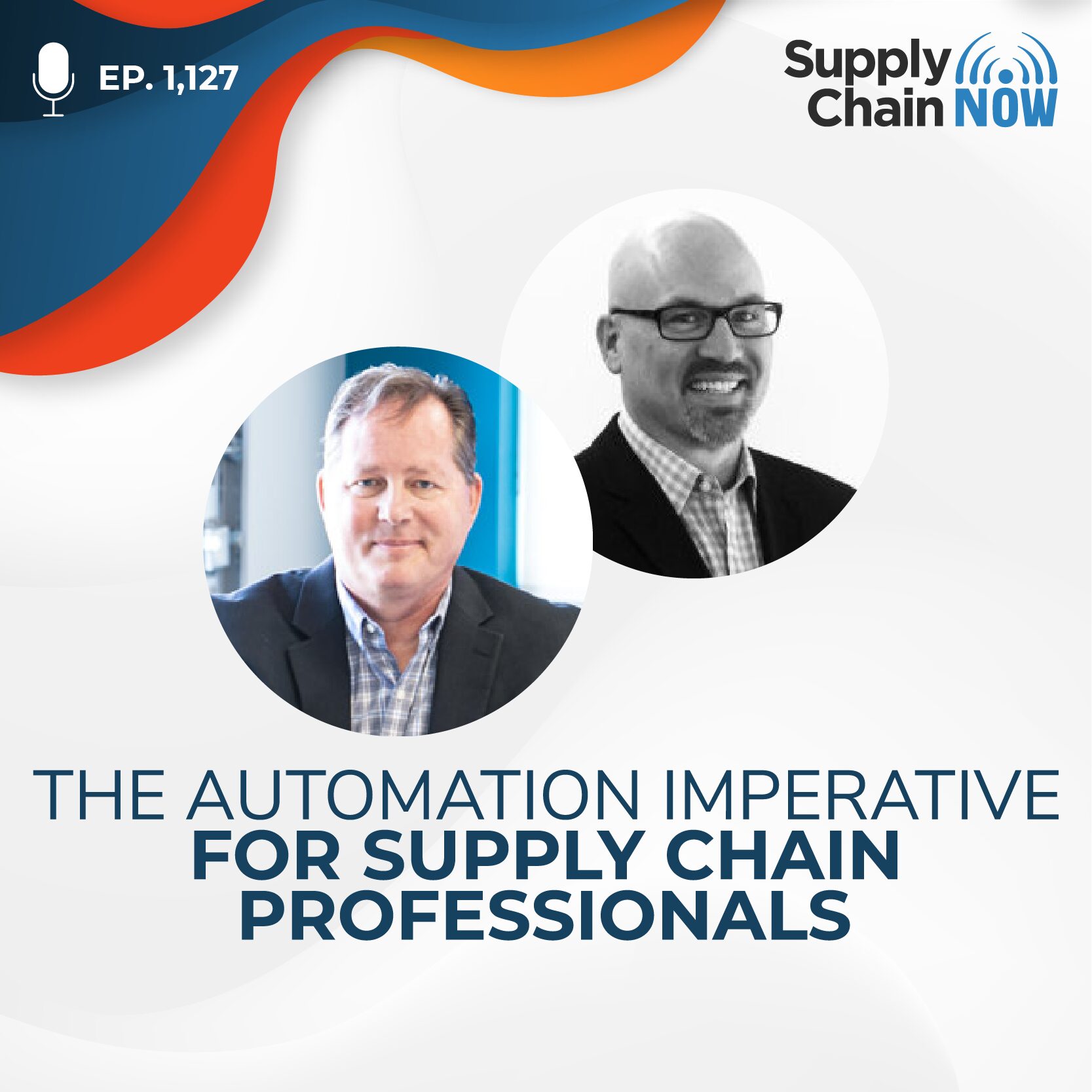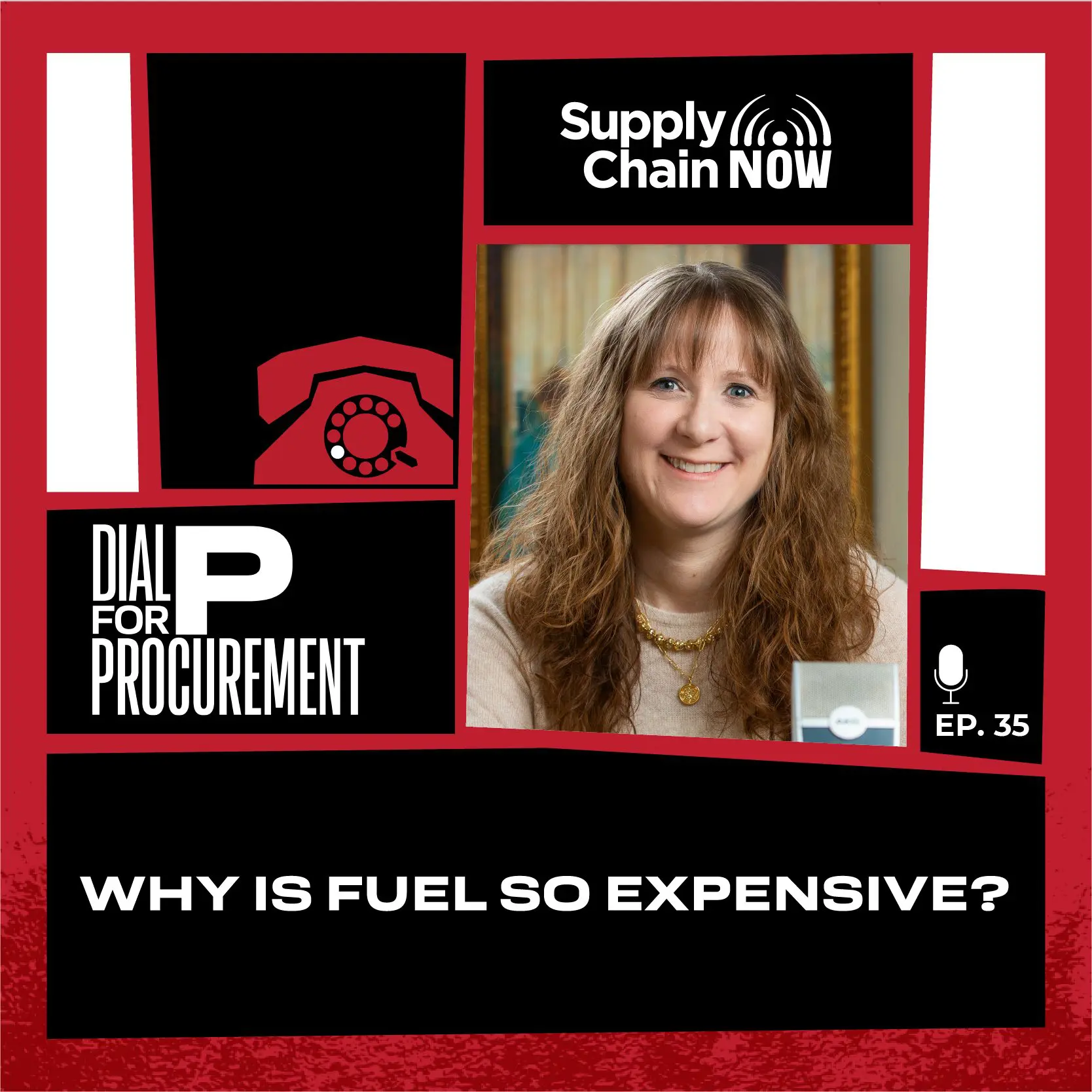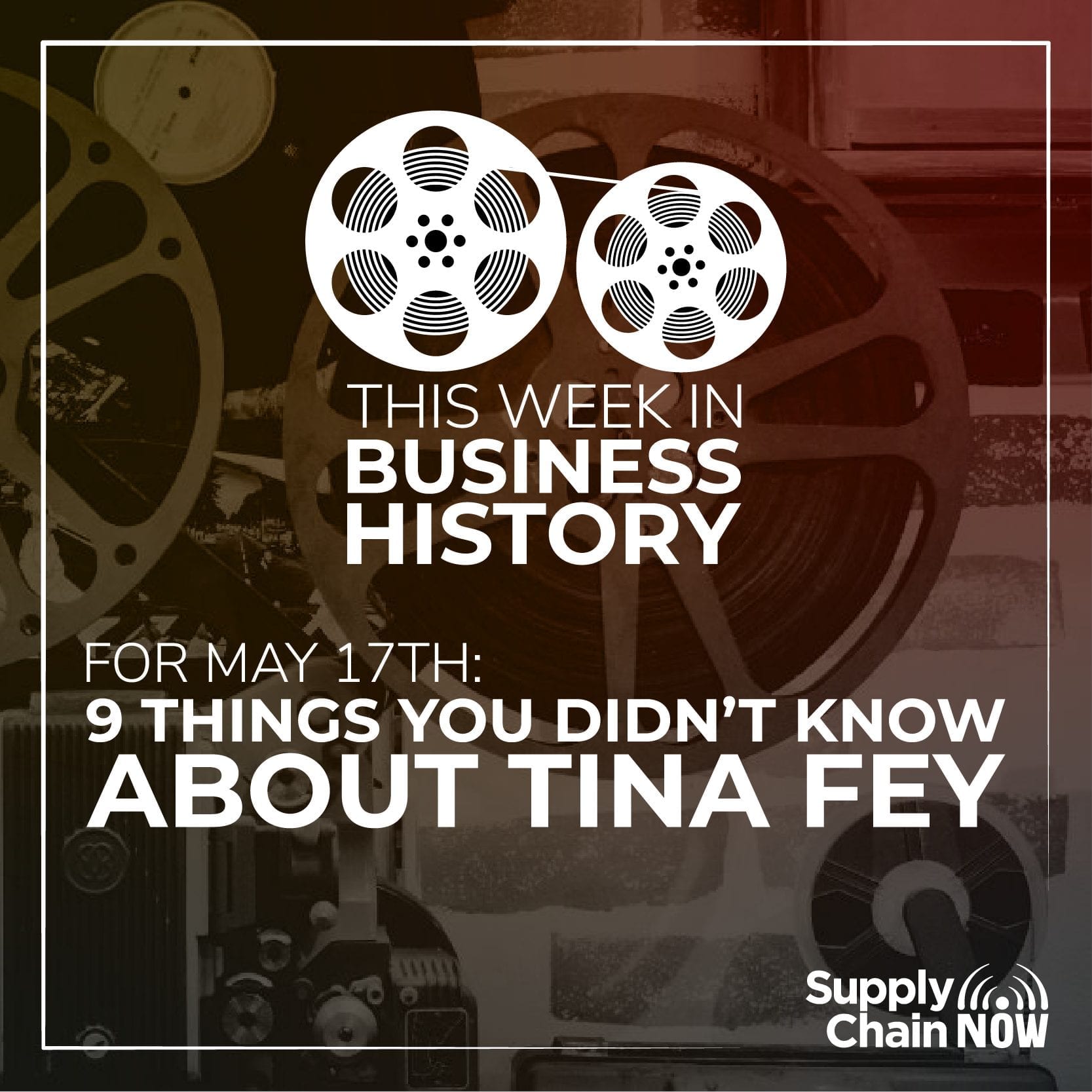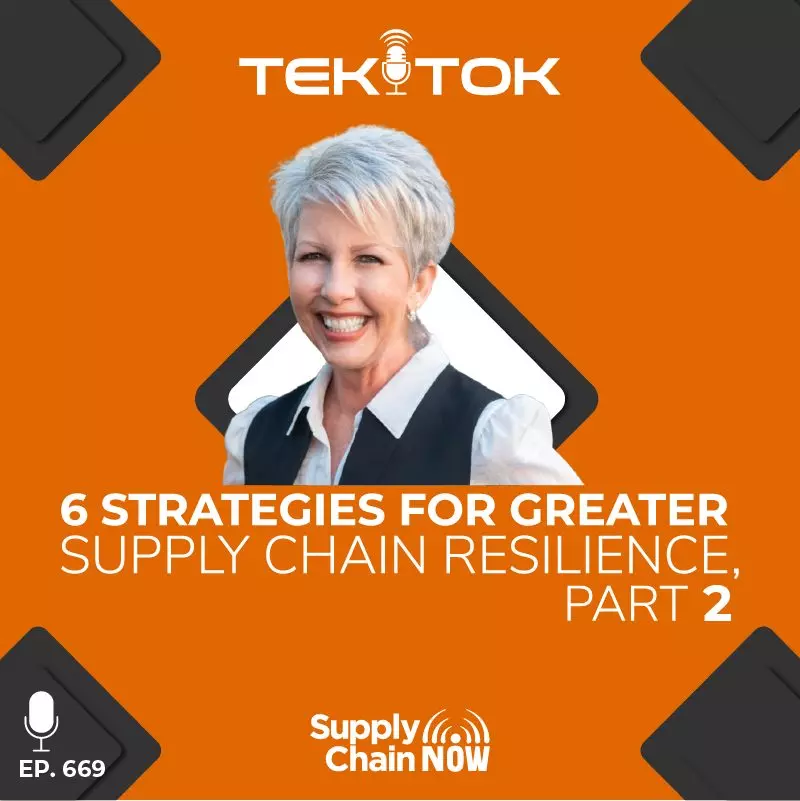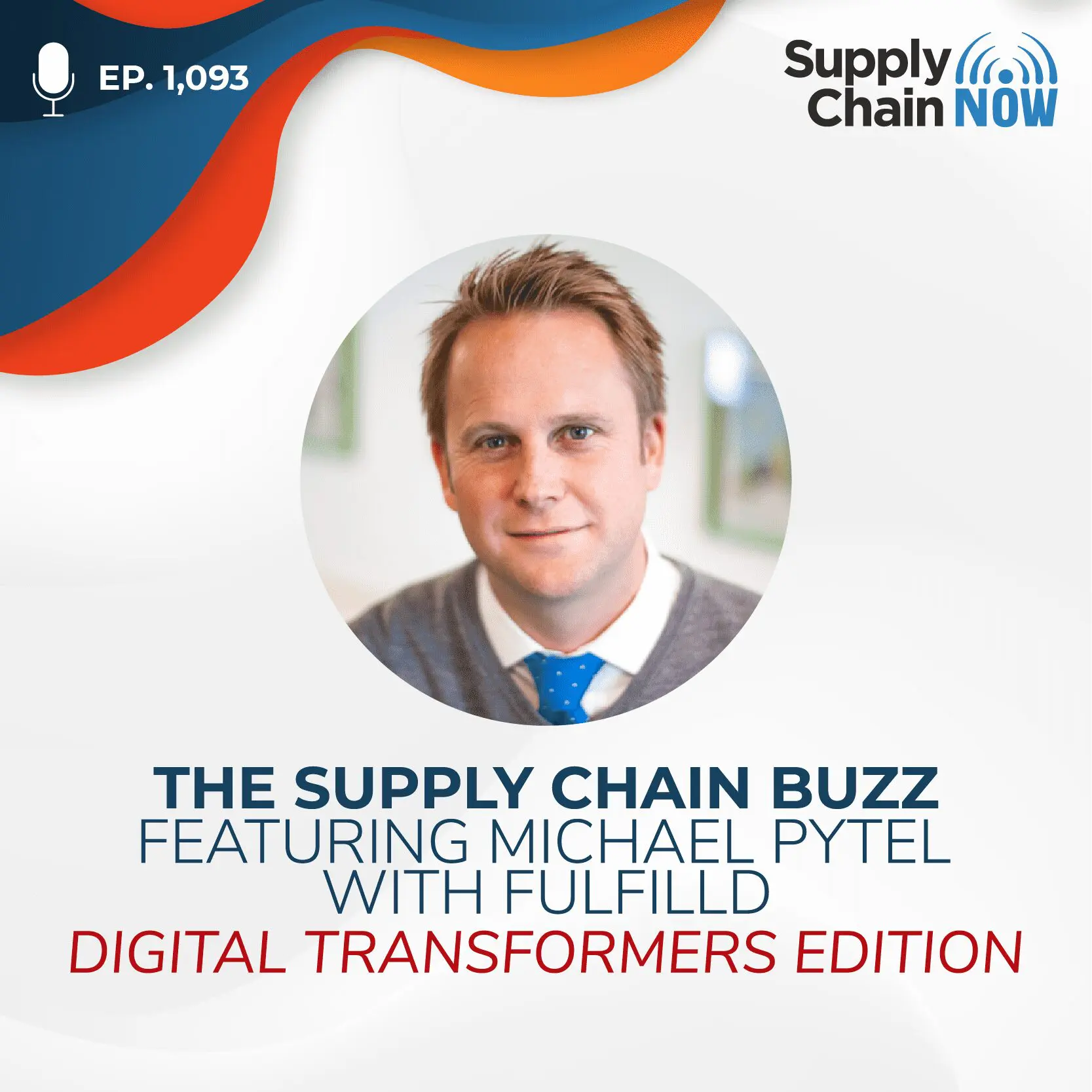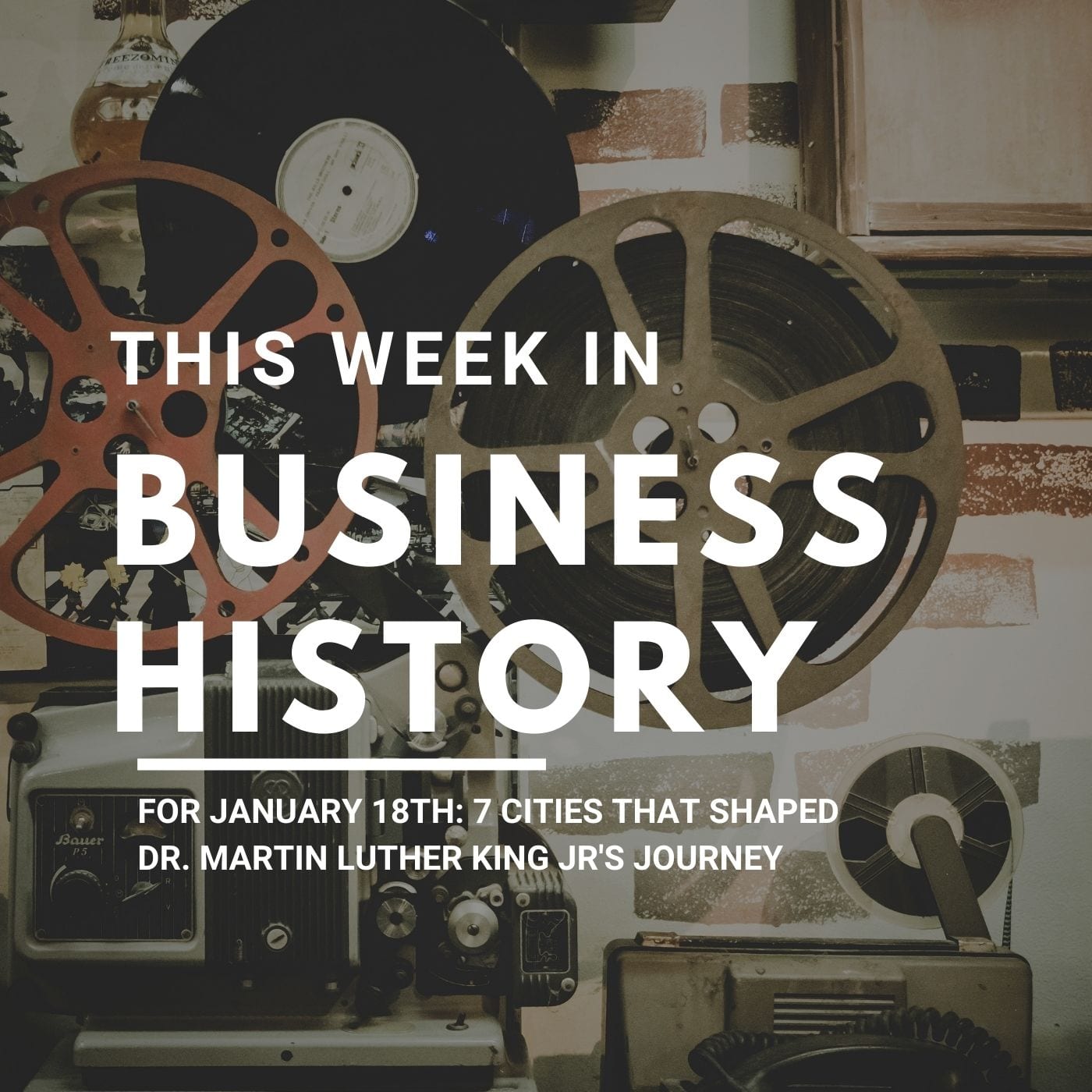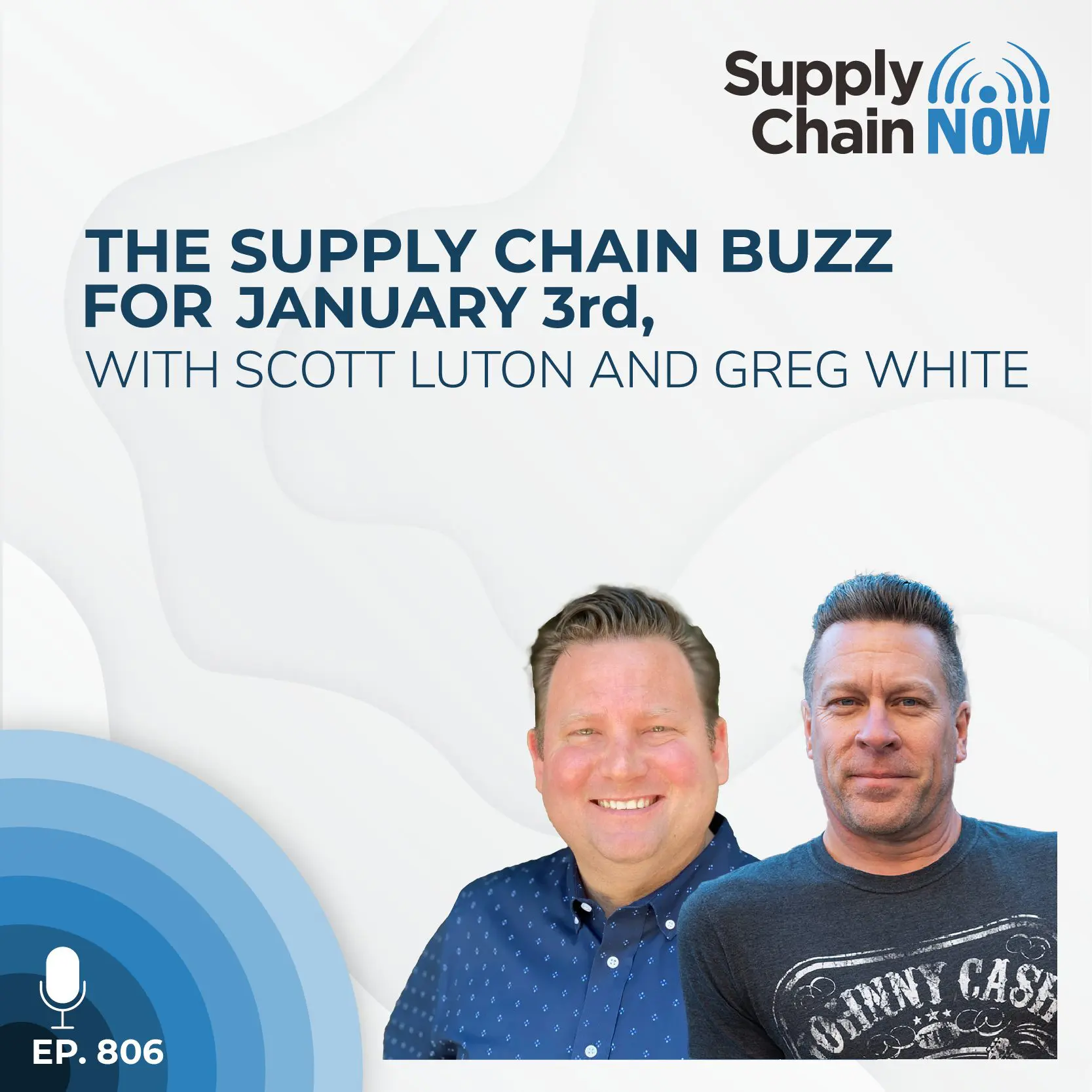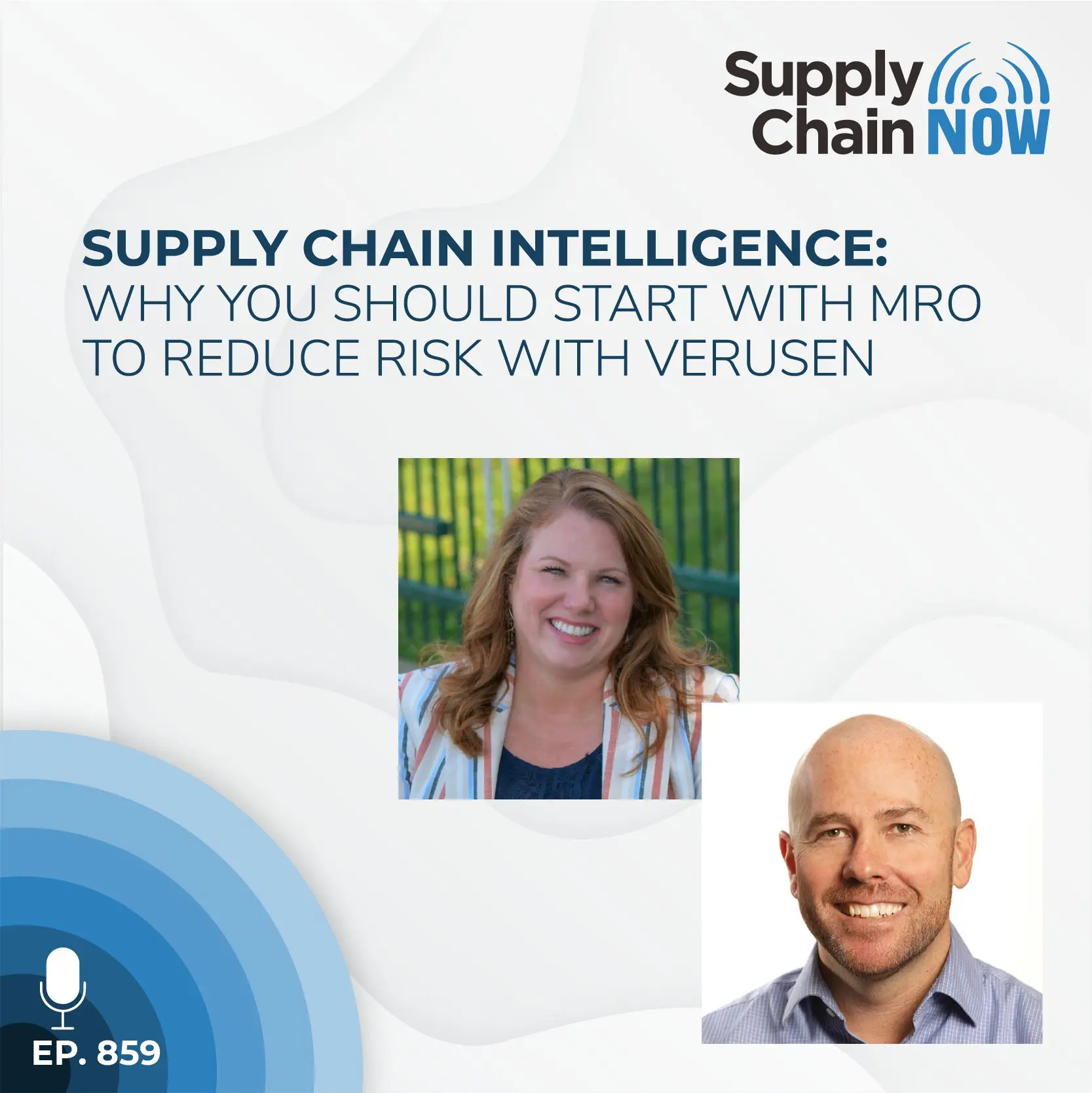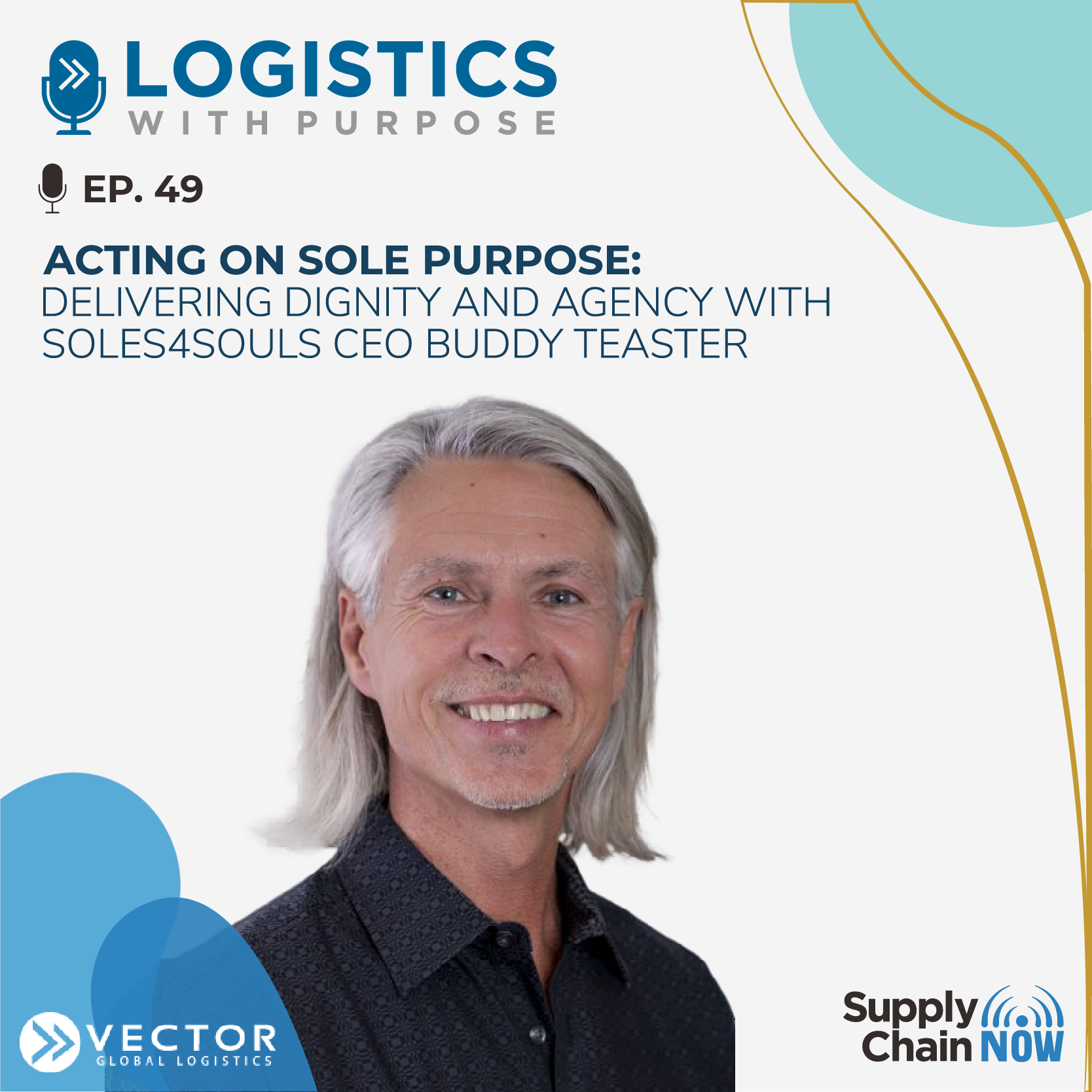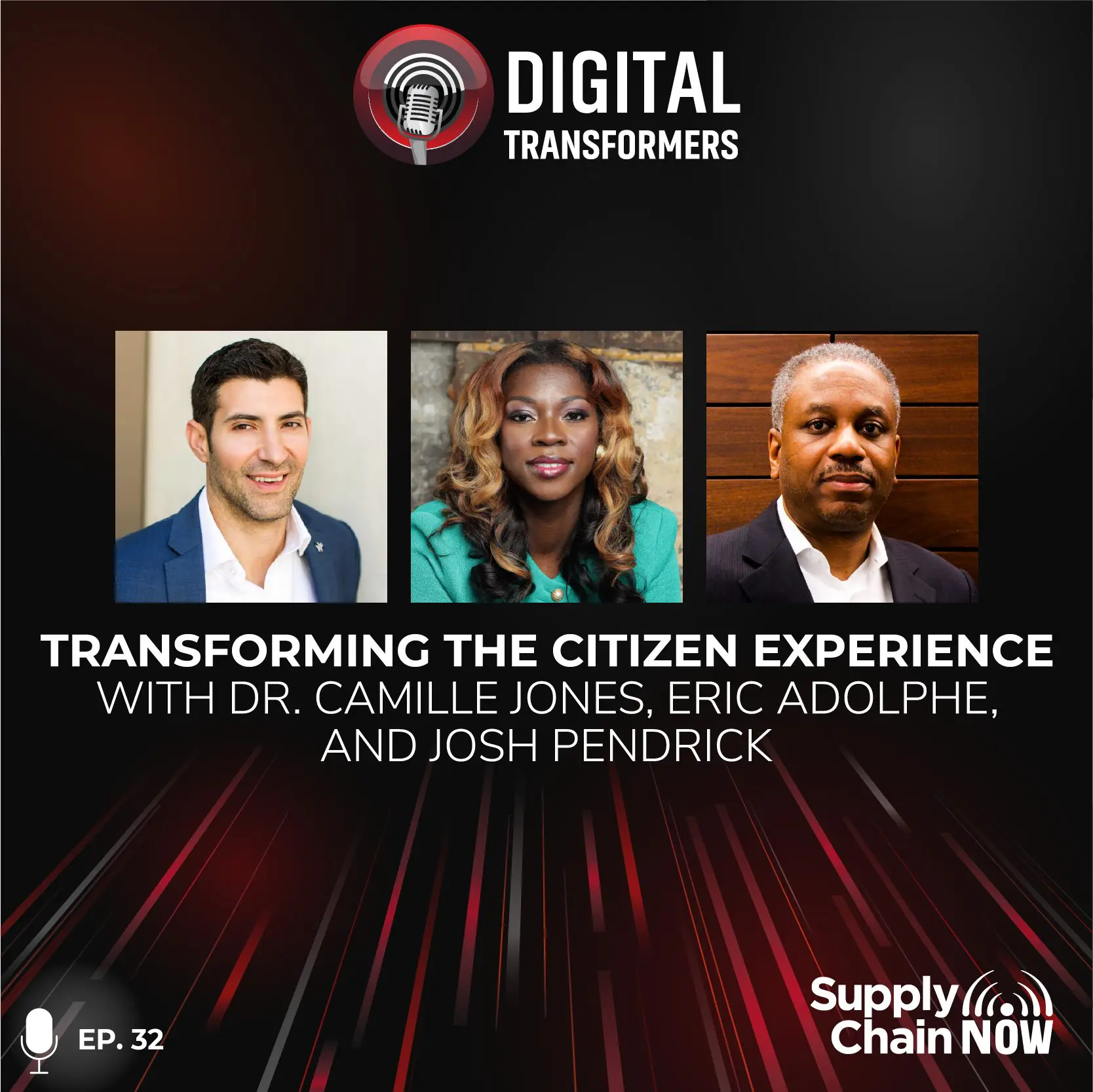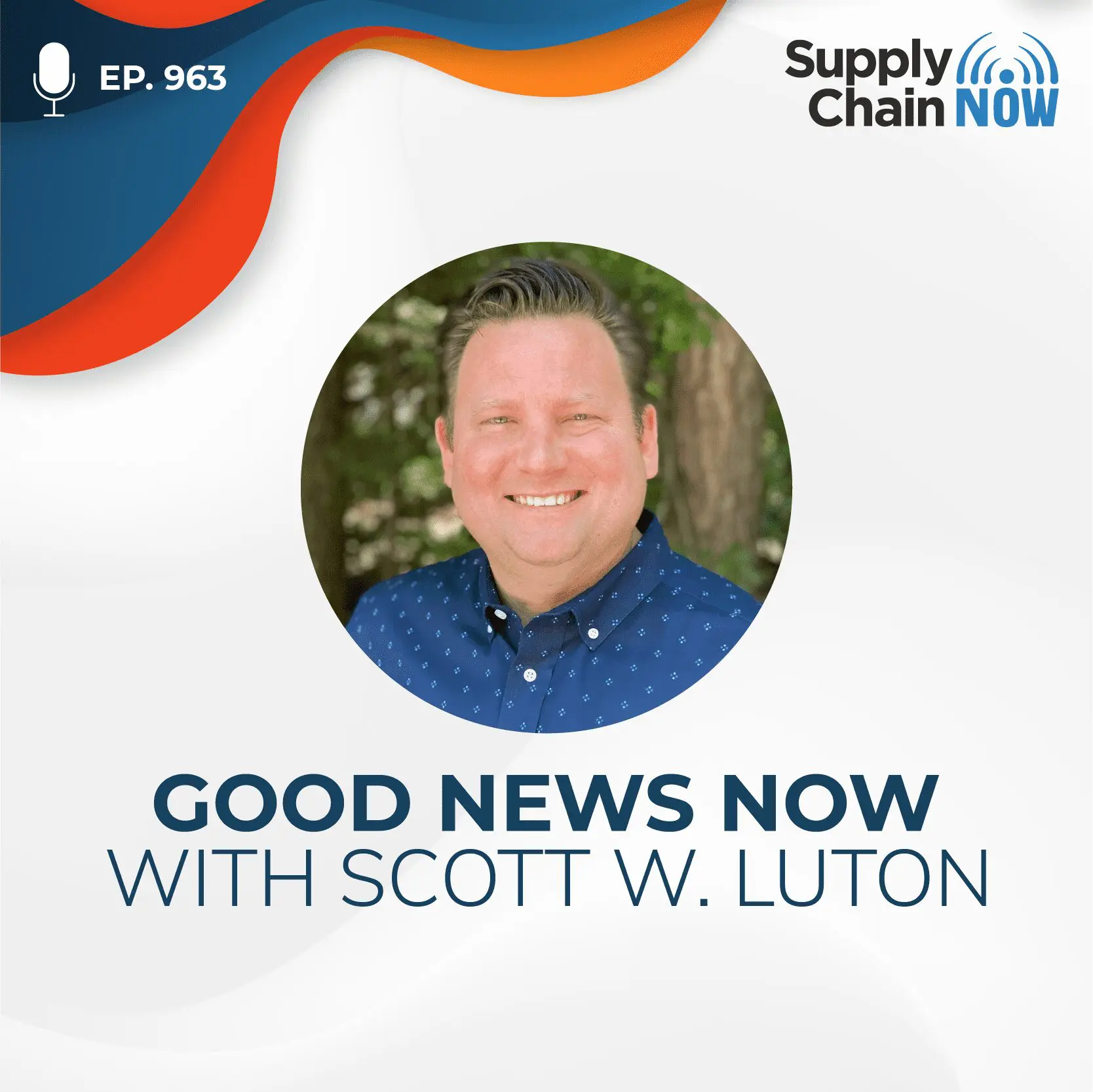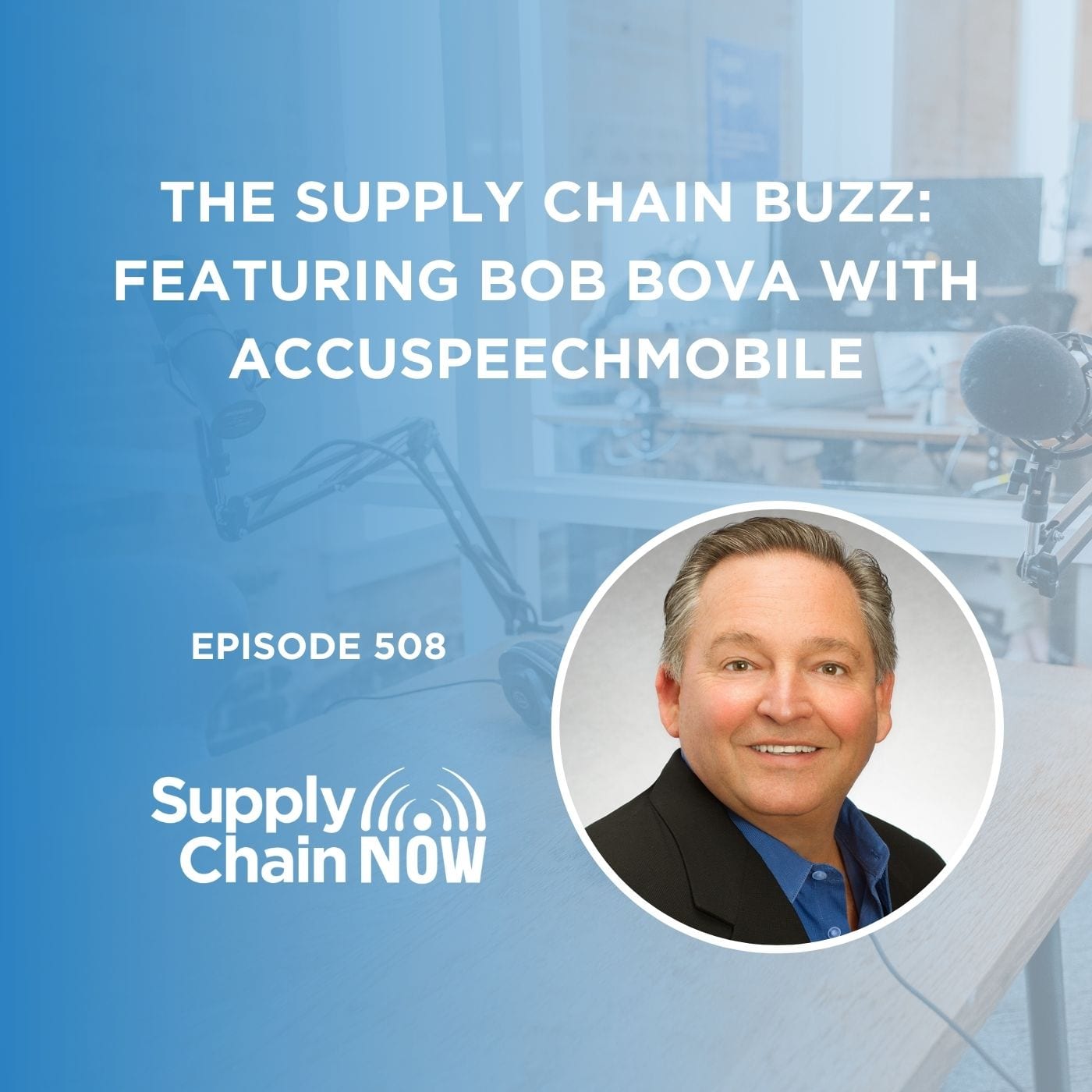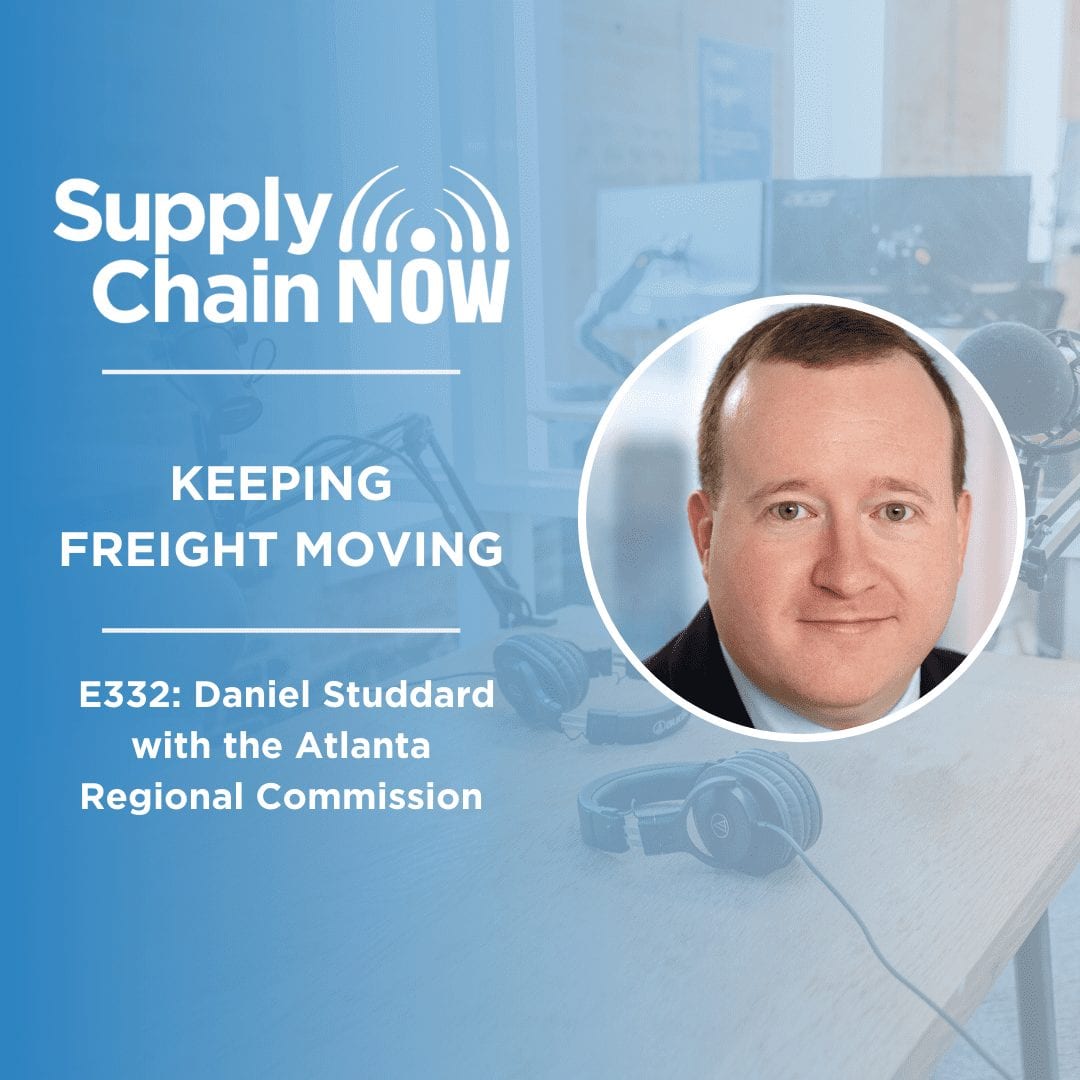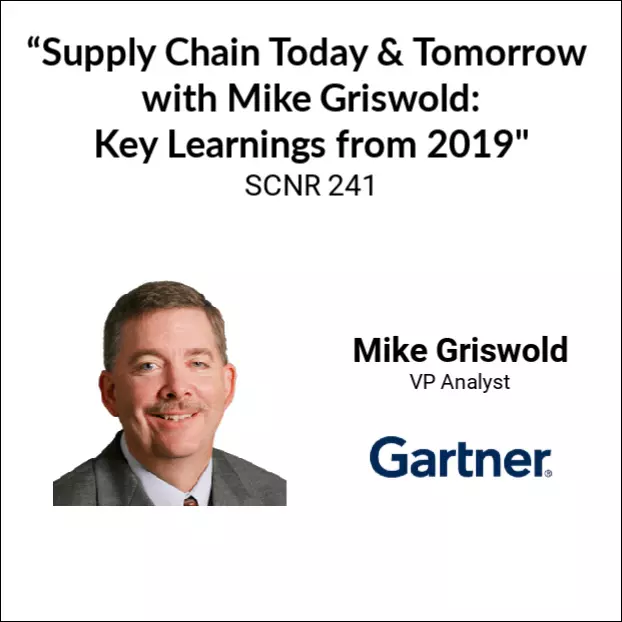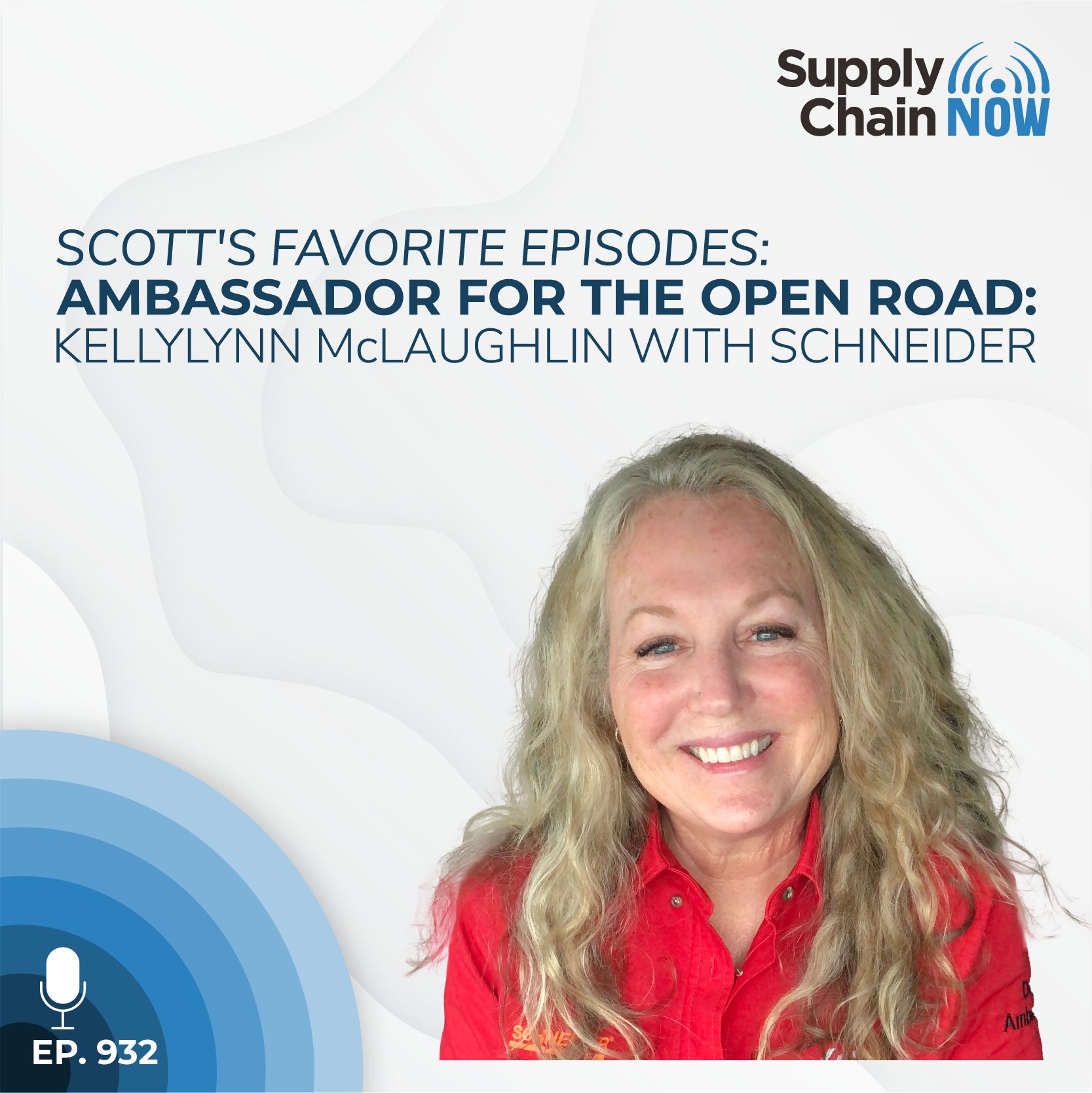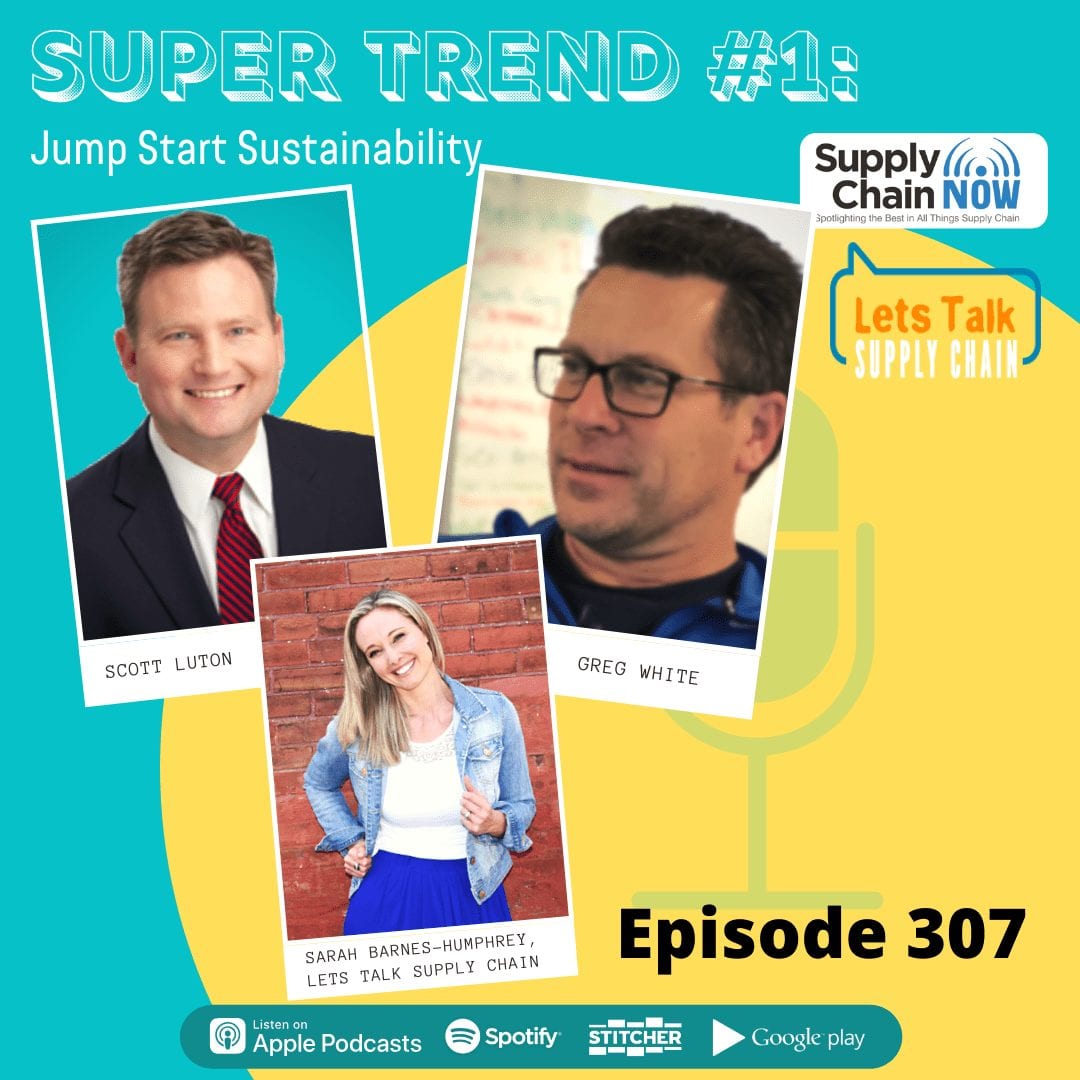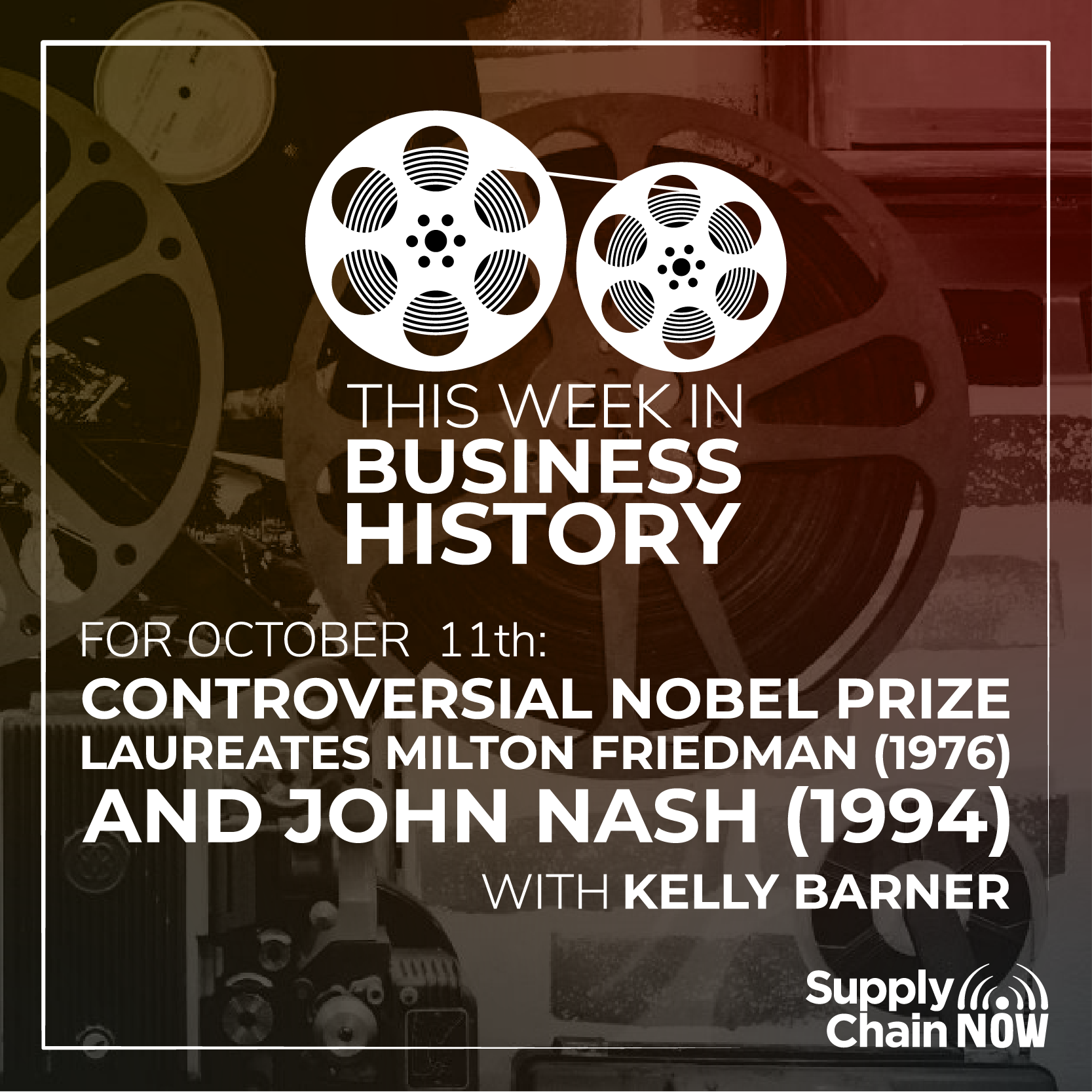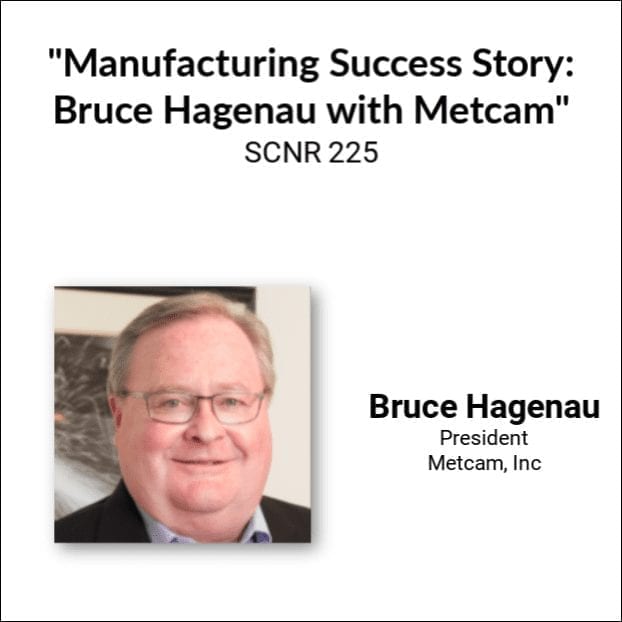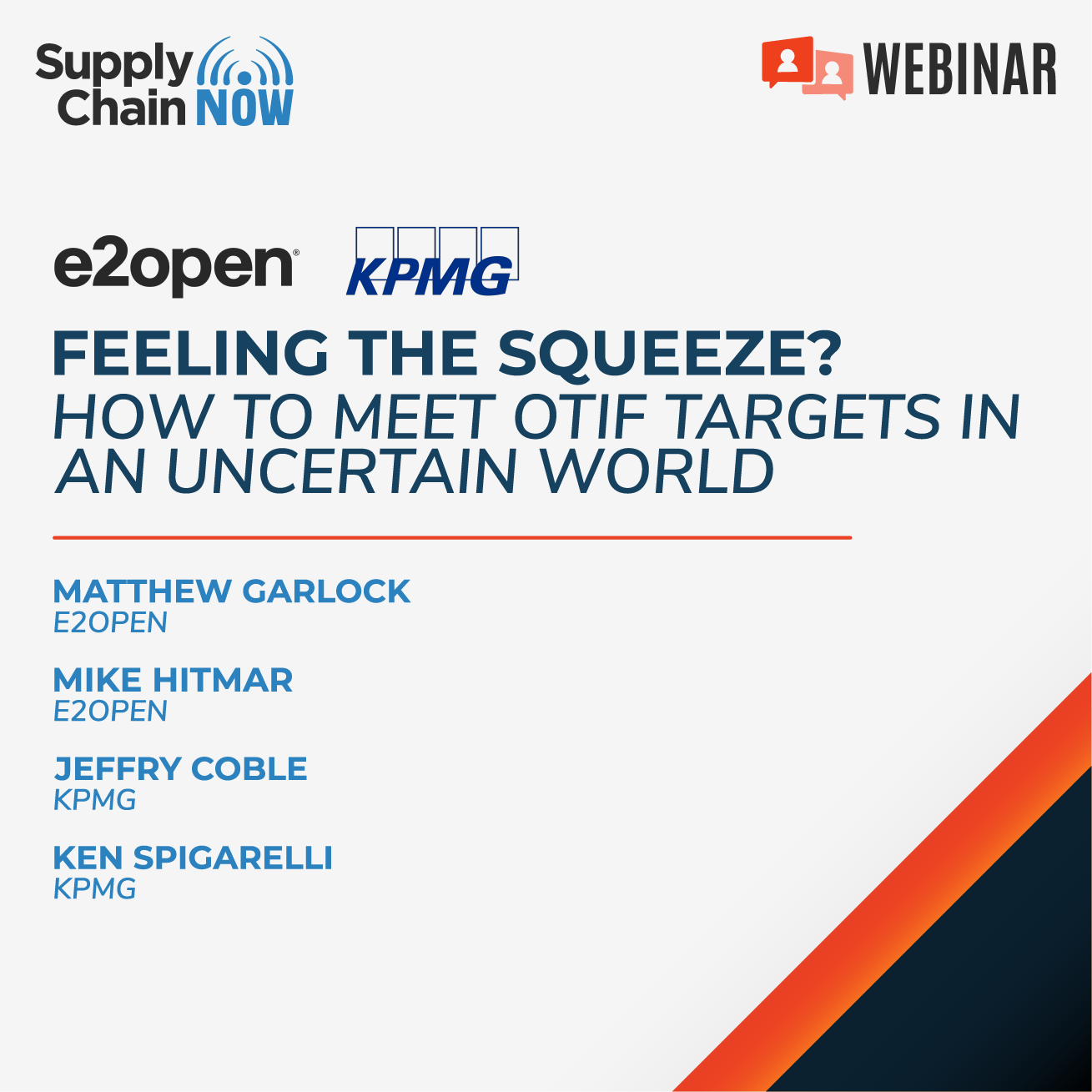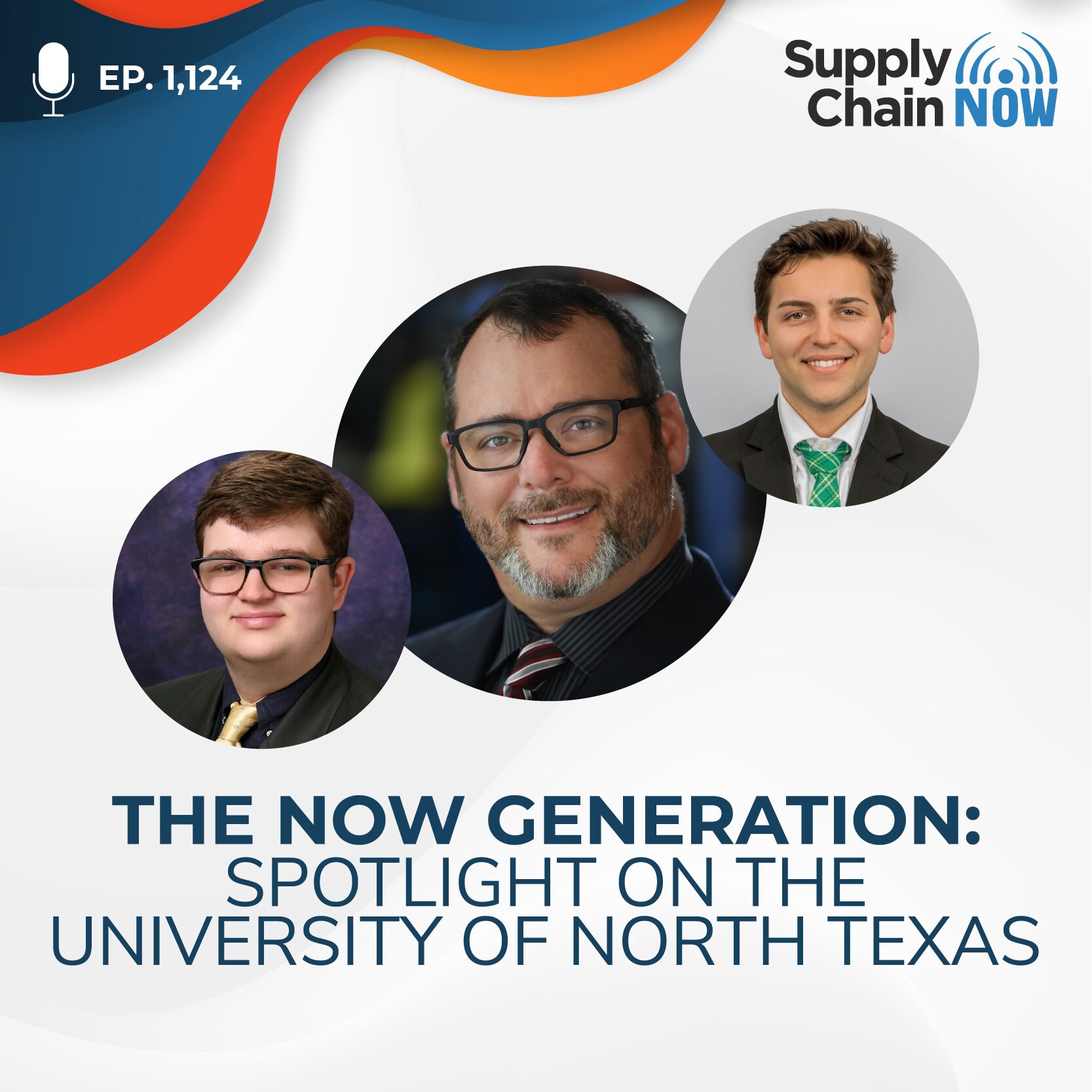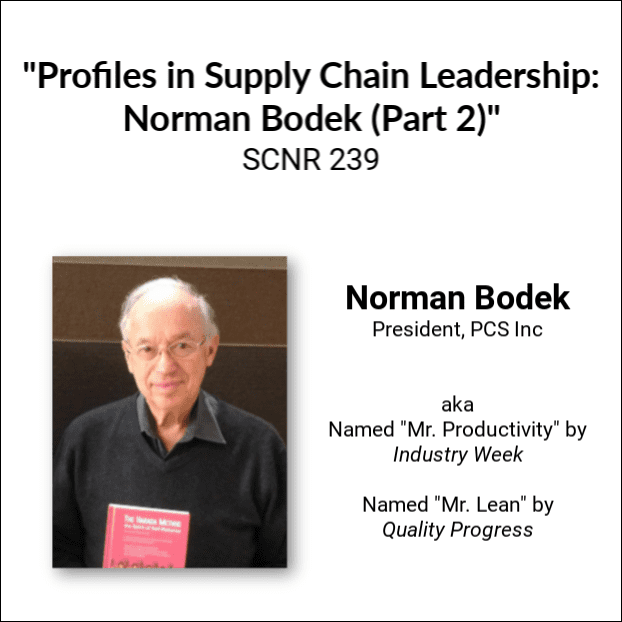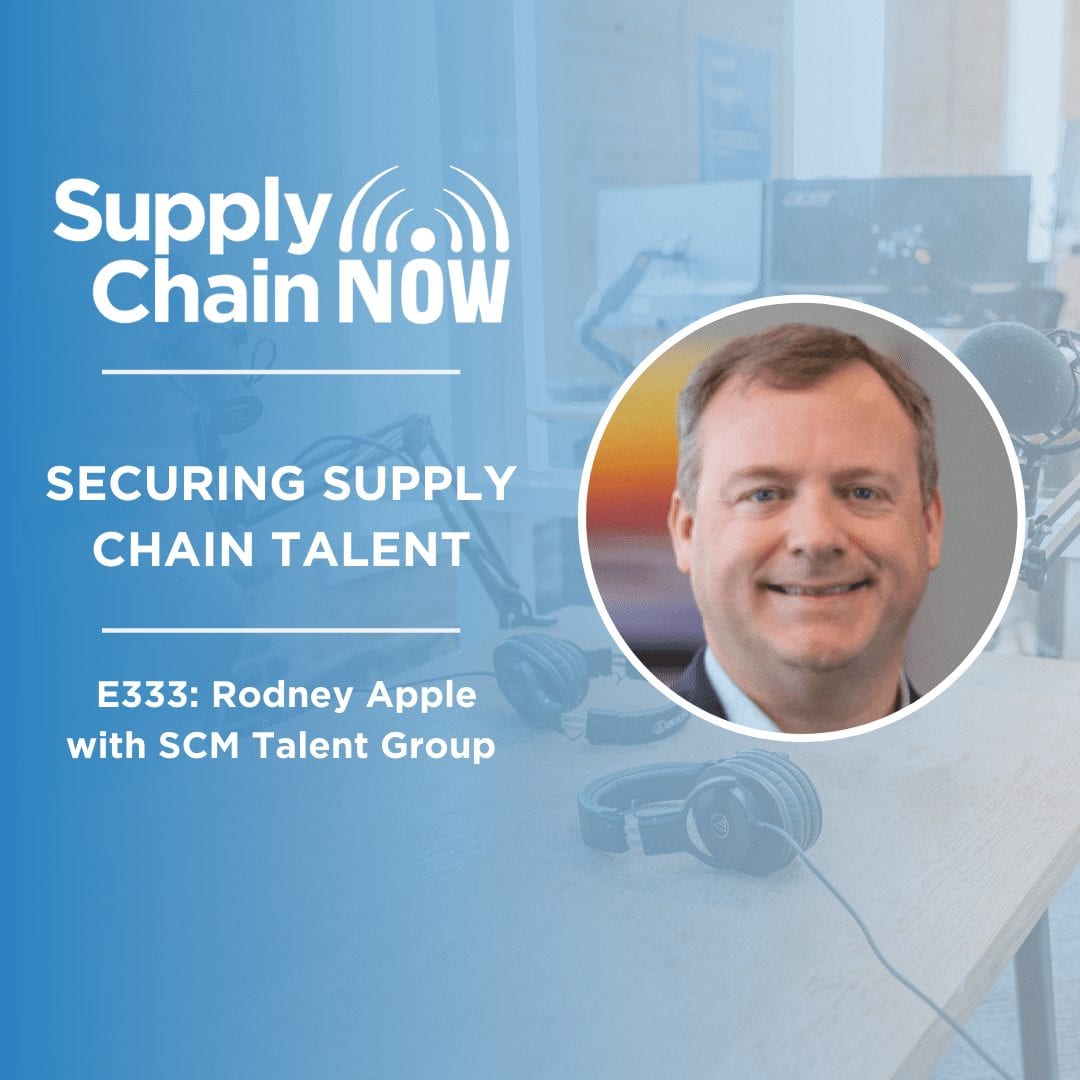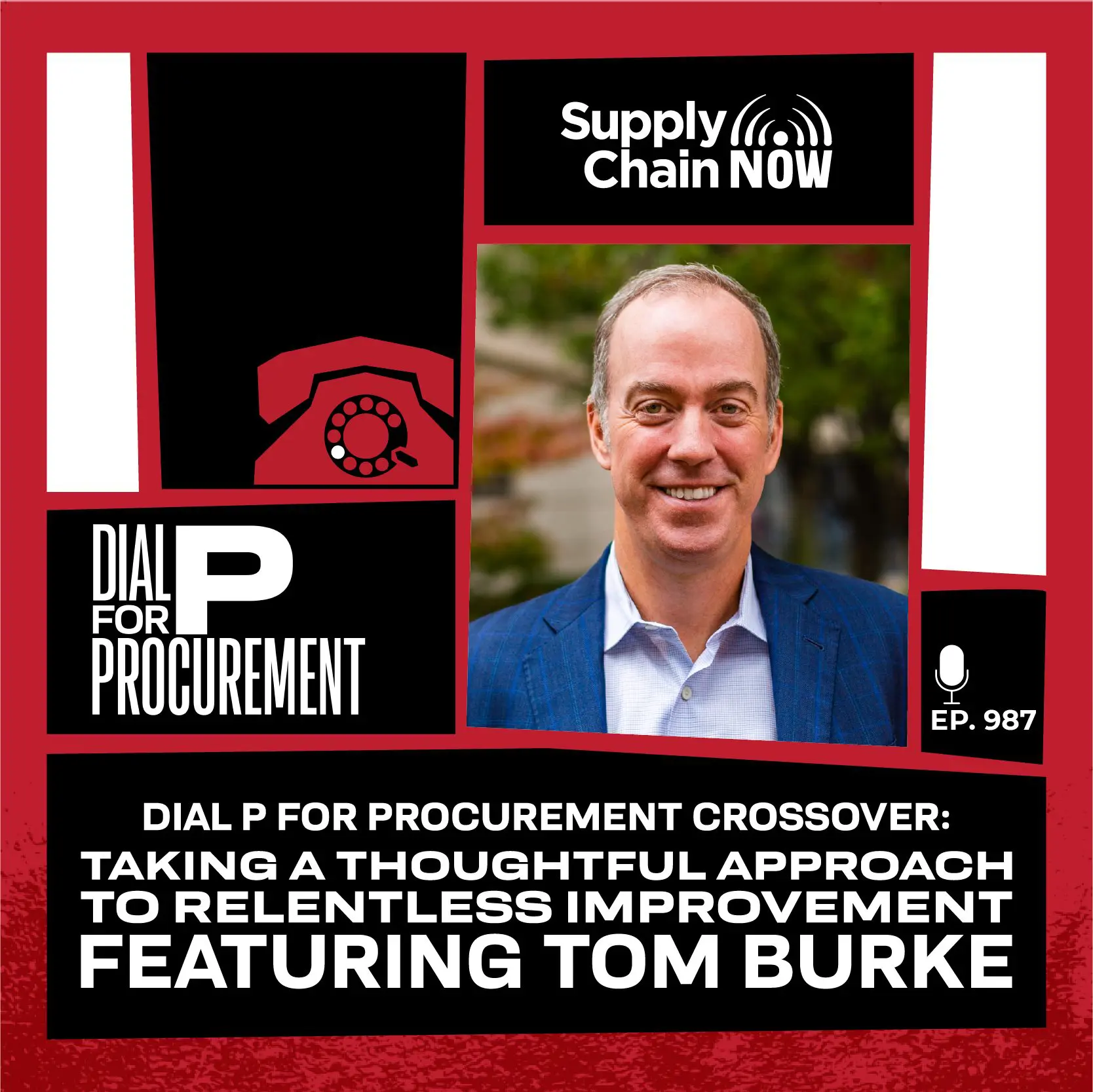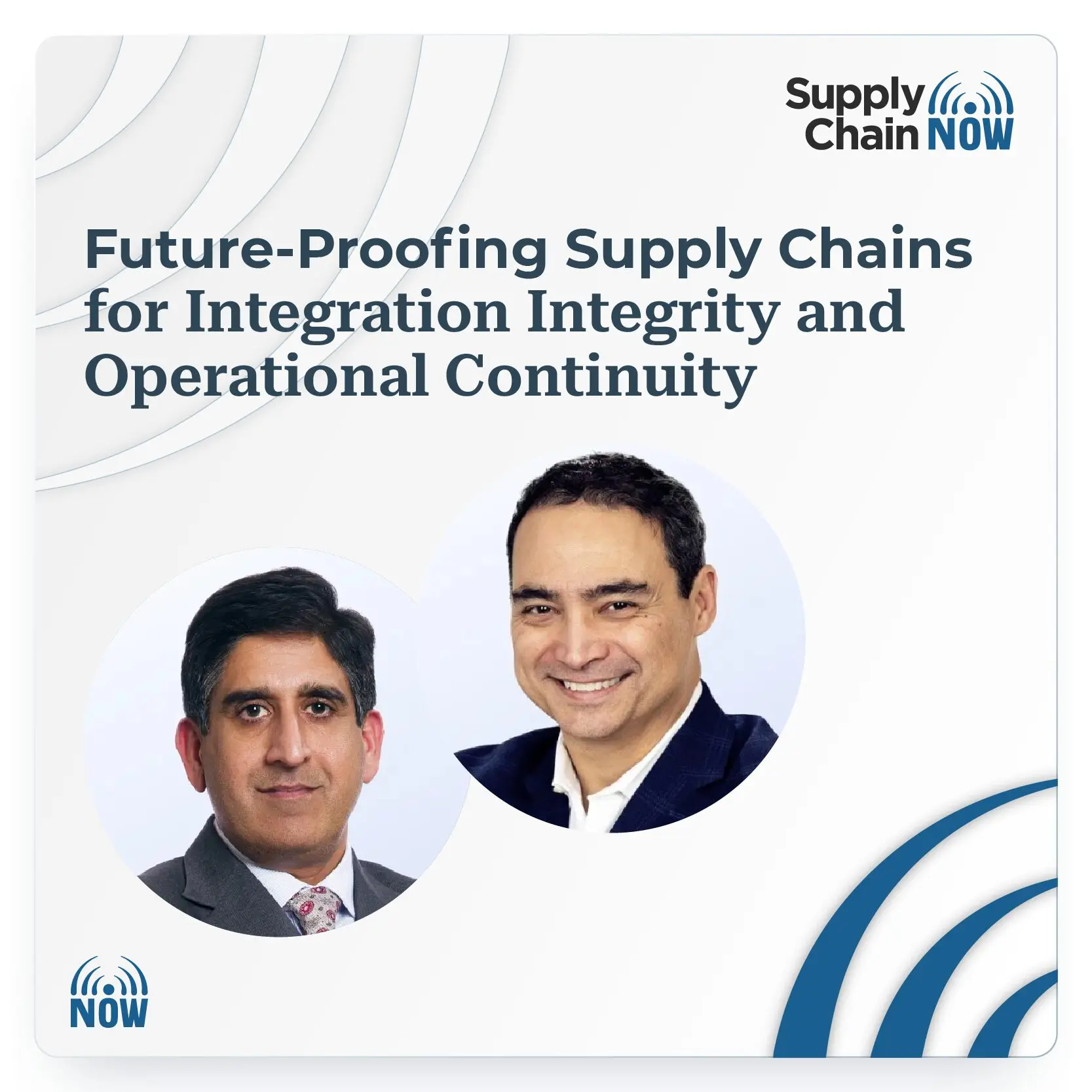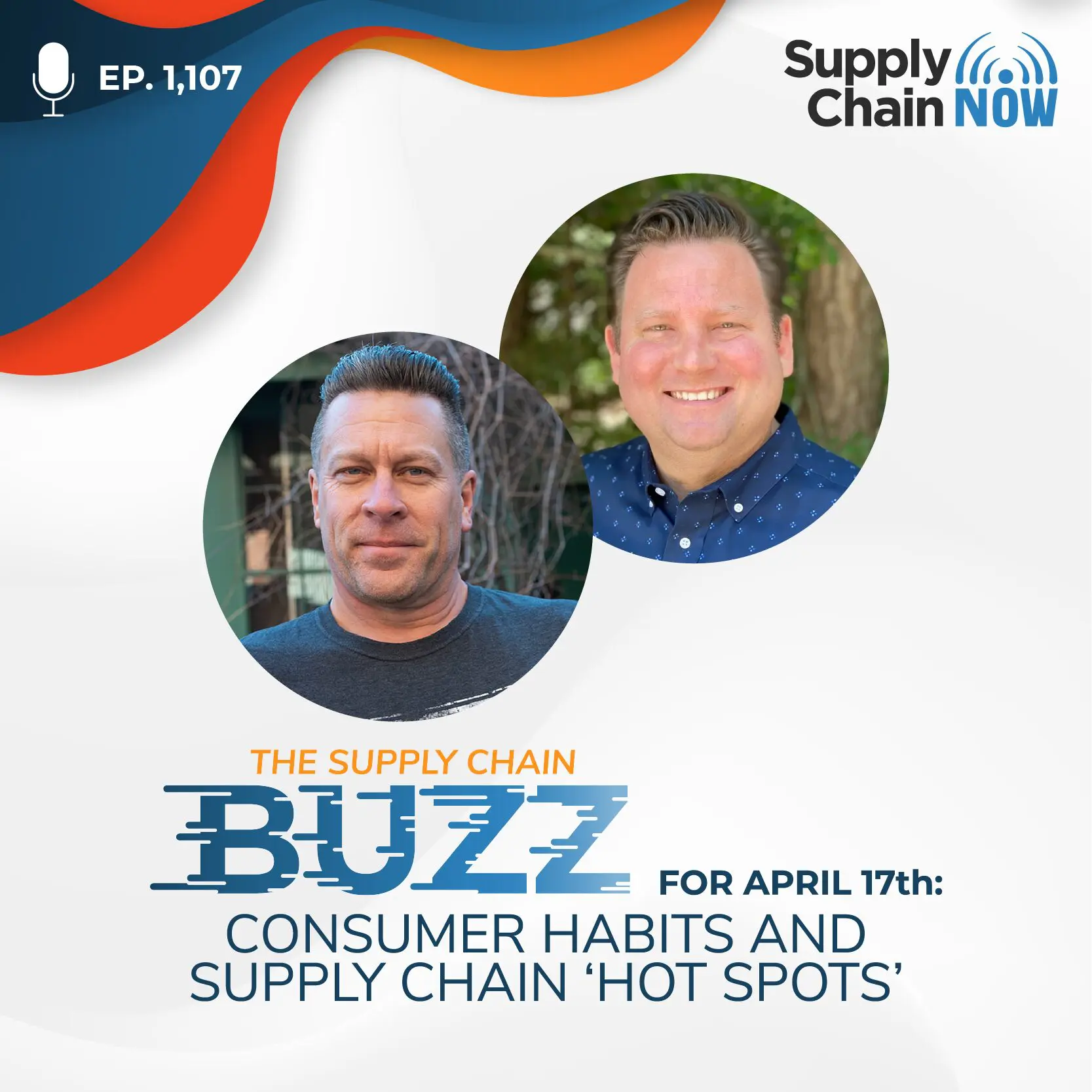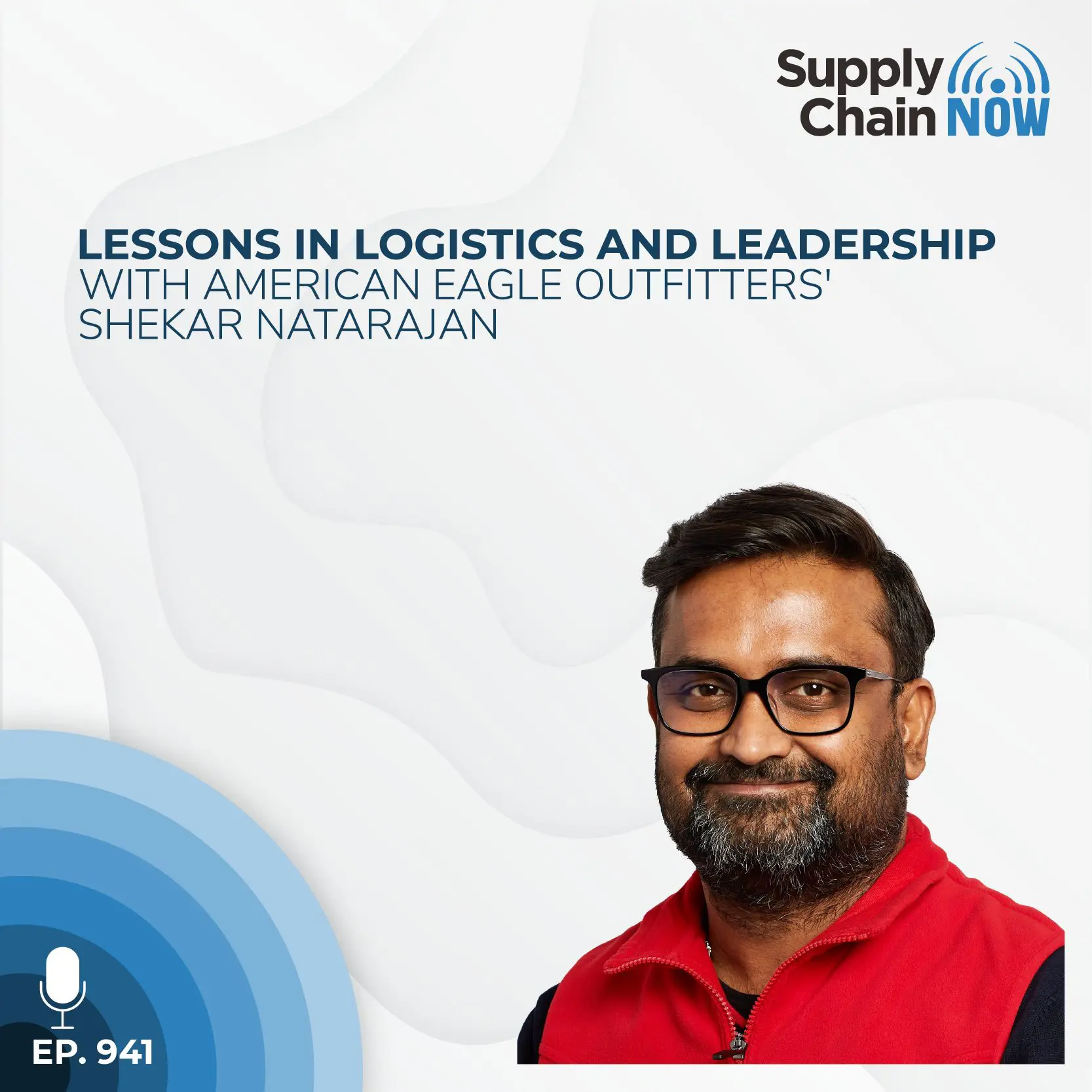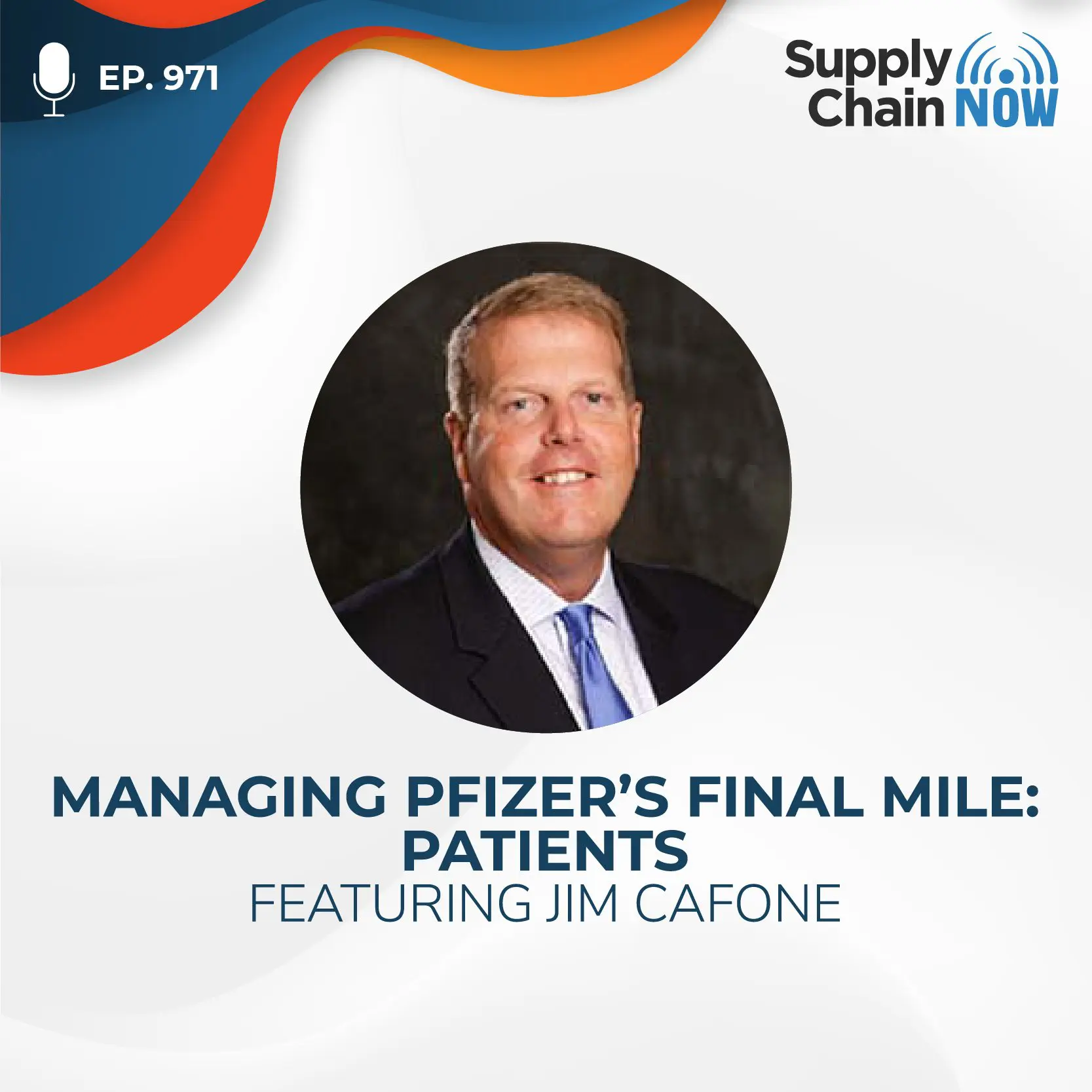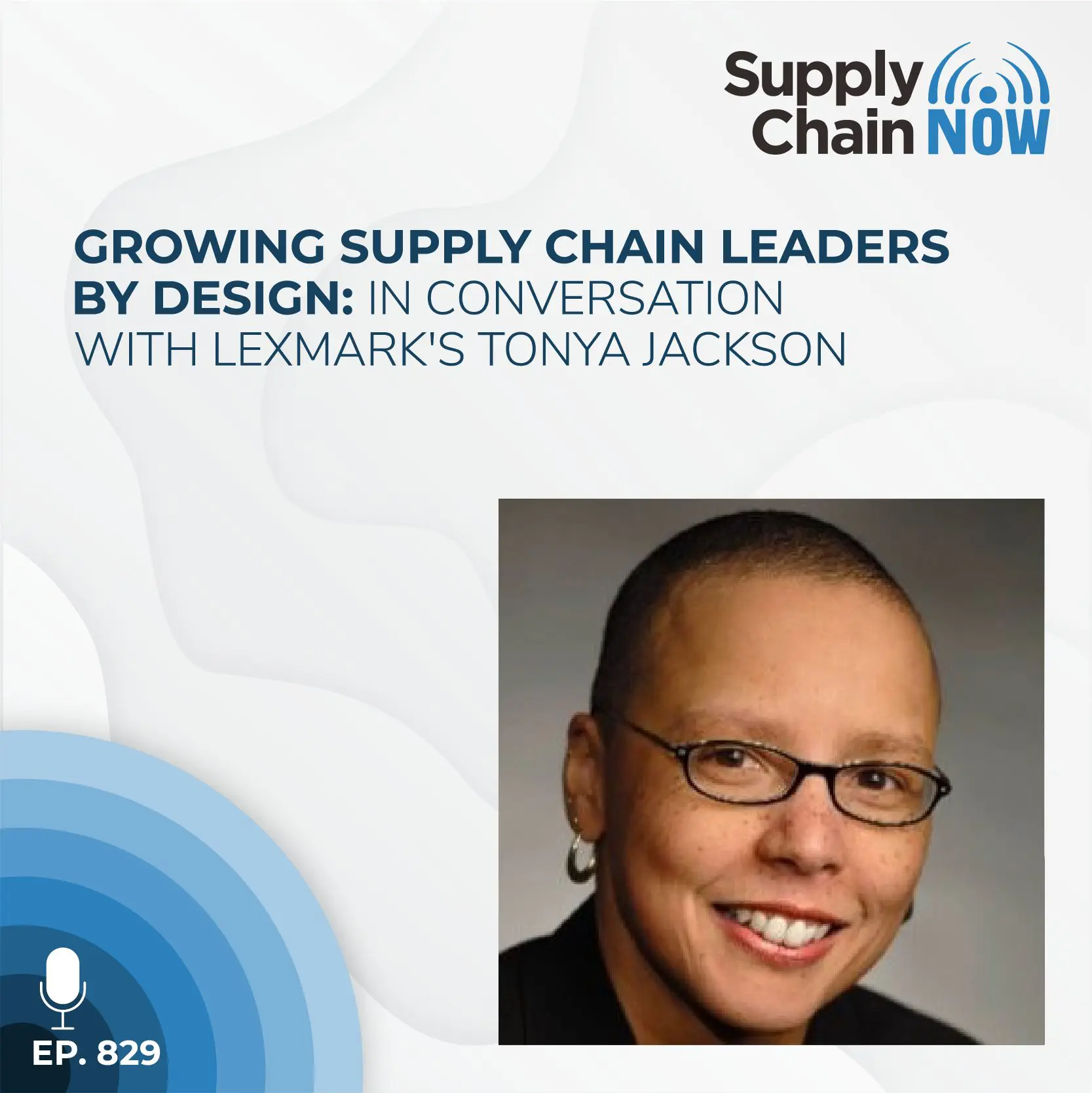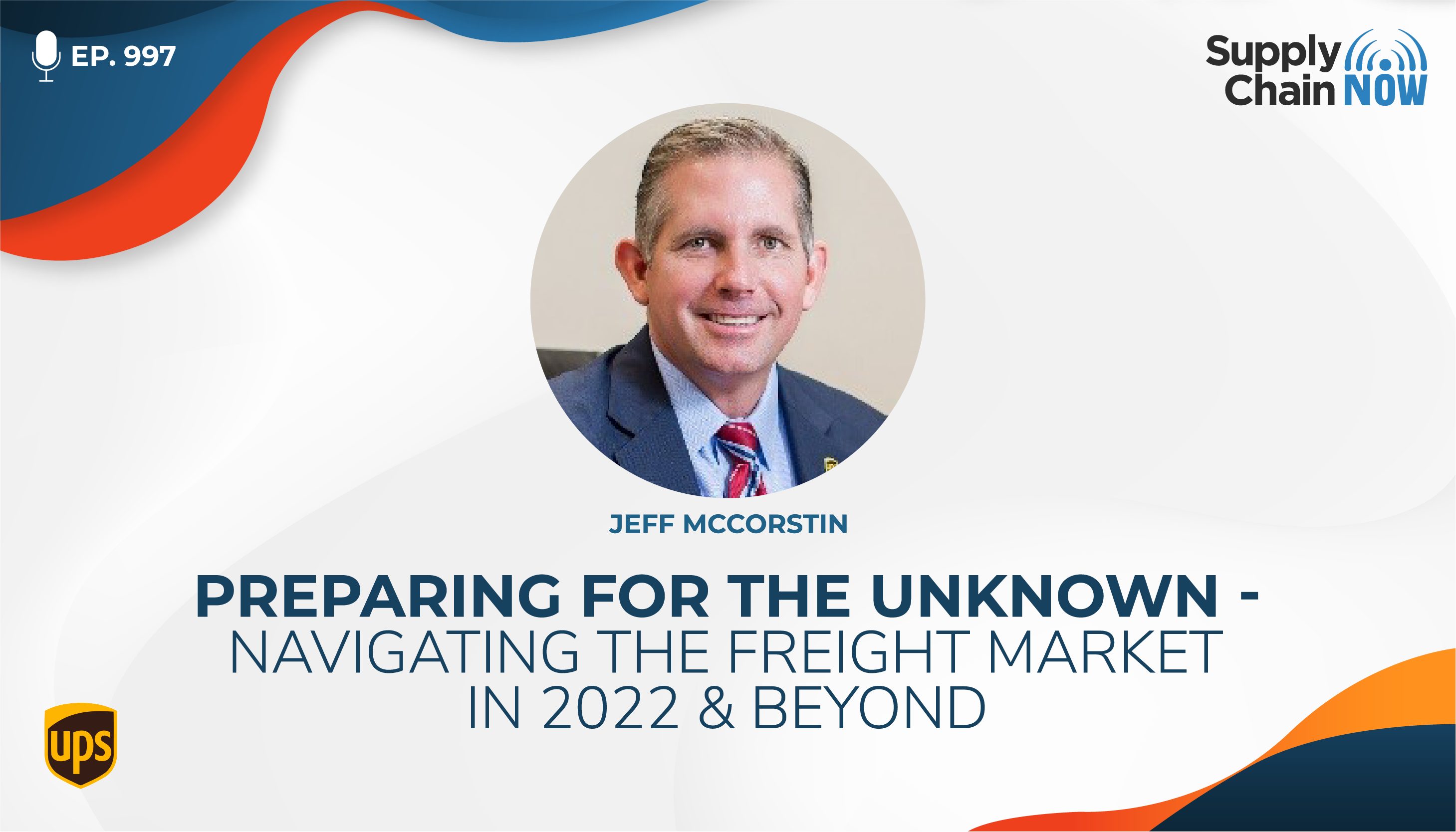
We've always believed our people are our most important asset. They rose to the occasion, no doubt about it. I’ll give you one example with the most recent China lockdown. We had 40+ employees that slept in our warehouse for over a hundred days.
- Jeff McCorstin, President of UPS Global Freight Forwarding
Episode Summary
How do you plan for your company’s air and ocean freight shipments when the one constant in the market is unpredictability? What do you do when you can only look six months into the future, and you know that what you’re predicting is unlikely to happen?
Jeff McCorstin, President of UPS Global Freight Forwarding, has firsthand experience leading a global organization through volatile market conditions and disruption. Jeff recently joined Scott Luton and Greg White for a livestream to share his insights based on over 30 years’ experience in supply chain… actually, that’s 32 years, 11 relocations, three continents, and 18 different jobs.
In this conversation, Jeff focuses on:
• How to navigate current freight market conditions and what to expect in Q4 2022 and beyond
• What it was like getting a call from the White House in 2020
• What participants are likely to learn at this year’s UPS Supply Chain Virtual Connect
Episode Transcript
Intro/Outro (00:03):
Welcome to Supply Chain Now, the voice of global supply chain. Supply Chain Now focuses on the best in the business for our worldwide audience, the people, the technologies, the best practices, and today’s critical issues, the challenges and opportunities. Stay tuned to hear from those making global business happen right here on Supply Chain Now.
Scott Luton (00:31):
Hey. hey. Good morning, good afternoon, good evening. Scott Luton and Greg White with you here on Supply Chain Now. Welcome to today’s livestream. Greg, how are you doing?
Greg White (00:38):
I am doing quite well, Scott. How are you doing?
Scott Luton (00:41):
I’m doing wonderful. It’s been a busy, busy day already.
Greg White (00:44):
It has. First meeting at 7:30 a.m., so, you know, adulting today.
Scott Luton (00:50):
Lots of adulting. Lots of adulting. You know, one of the things we were chatting about pre-show, of course, was Hurricane Ian. So, if you’re listening anywhere in the Florida, or really the southeastern U.S., Cuba, our thoughts and prayers are with you. And we’re going to be promoting some ways that folks can help out in the recovery efforts in the coming days. So, Greg, I know you probably echo my sentiment there.
Greg White (01:14):
I do because I care about my neighbors who are in the path. So, we’re keeping a close eye on it here. You guys, if you see me look away, it might be because I’m looking at the map.
Scott Luton (01:24):
It’s amazing how quickly that has been churning.
Greg White (01:28):
And changing so quickly. As you said, I think they just started calling it the storm of the century. And we talked about this in the green room, the landing position has moved, like, 60 miles south in about 40 minutes. And, of course, they don’t know. They call it the cone of uncertainty. Think about that, even though it’s a huge cone, it’s still uncertain.
Scott Luton (01:50):
On a much lighter note, what we’re chatting about here today is the great freight unknown – kind of a similar theme.
Greg White (01:58):
Hey, nice one. Good segue.
Scott Luton (01:59):
We try. How can we best navigate the challenging freight market through the end of the year and into 2023? It’s unbelievable, we’re almost in October – goodness – of 2022. So, Greg, it should be a great conversation, right?
Greg White (02:14):
Yeah. Gosh, we got some insights, again, in the green room. You know, we should really let people in the green room, shouldn’t we? No. We’re going to talk about this on the show, but just some unbelievable and dramatic changes over the last several weeks and months. So, I think it’s going to be really compelling, it’s going to be concise and compelling.
Scott Luton (02:34):
Agreed. And very practical, practical and informational, so stay tuned. And, again, wherever you’re tuned in, welcome to the conversation. We also want to hear from you as we navigate the next hour. We’d love to get your thoughts, your observations on what Greg and I and our home run guest will be chatting through. And we already see Bryan Pittman tuned in from Atlanta, GA via LinkedIn. So, Bryan, great to see you here. And welcome everybody. Big thanks to Chantel, Katherine, and Amanda behind the scenes helping to make production happen. Okay. No further ado, Greg, are you ready for our big time guest?
Greg White (03:11):
I think we’ve had enough do. Yeah. Let’s go for it.
Scott Luton (03:14):
Well, let’s welcome in Jeff McCorstin, President UPS Global Freight Forwarding. Hey. Hey. Jeff, how are you doing?
Jeff McCorstin (03:22):
I’m doing well, Scott. Thanks for having me. Good to see you, Greg.
Greg White (03:25):
Yeah, welcome aboard.
Scott Luton (03:26):
Great to see you. Great to see you. And as Greg was alluding to, we should have recorded your pre-show conversation. You’re putting on a masterclass of sorts, Jeff.
Greg White (03:36):
Yeah. Practically co-opted it.
Scott Luton (03:40):
Well, let’s do this, so there’s no greater time to do good, good deeds, and help folks in need when we’re in situations like we were talking about on the frontend. And tomorrow – as a fun warm up question where we want to start with you here today, Jeff – as it happens is National Good Neighbor Day. I’m going to pose this to both of y’all, when it comes to good deeds, charitable initiatives, things that are out there, organizations and people really helping others out, Jeff, what’s one that you can pick that you really admire?
Jeff McCorstin (04:14):
Well, let me start with a call I received on Friday. I was up in Charlotte at the President’s Cup, and my next door neighbor here – because we’re not always at our place in Roswell – picked up the phone and called and wanted to make sure someone was around because there was a U-Haul truck in our driveway. And he wanted to make sure that the goods were actually going into the house rather than coming out of the house. Fortunately, we were receiving a bed, so, absolutely, that was a really cool call from a neighbor that we haven’t known that long.
Scott Luton (04:47):
Love that. So, Greg, we lean on our neighbors.
Greg White (04:49):
I hope UPS was delivering that, Jeff.
Jeff McCorstin (04:53):
We don’t want to be delivering king size mattresses.
Scott Luton (04:58):
So, Greg, same question. And we’re kindred spirits here, you’re involved in a lot of these organizations, these initiatives, what’s something that comes to your mind?
Greg White (05:07):
Well, I mean, I just had the board meeting with McKenna Farms Therapy Services this morning at 7:30, horse people, so they get up early. Equine physical therapy, vocational therapy, and speech therapy for the neuro diverse, and equine therapy is super powerful when you’re talking about people. Predominantly on the autism spectrum, it’s a great comfort as well as way to help them interact. And just the stuff that we’re doing there. Jesse, our executive director – is a god-send, literally – and our chairman of the board, Ricky Poe, she and he literally started together with he being the veterinarian for the one horse that she had, and then donating 20 grand to make this thing more real. And we just have continued to grow it, and the services are fantastic, and we’ve got a huge waiting list. So, we’ve got big initiatives to expand the farm.
Scott Luton (06:01):
Love that.
Jeff McCorstin (06:02):
That sounds great.
Scott Luton (06:03):
Love that. And I’ll just add –
Jeff McCorstin (06:05):
And I’ll share one other that’s not a neighbor, but more of a similar line. You know, I’m on the board of Good360, which closes the needs gap in the United States, or at least helps close the needs gap. And Matt Connelly – who I believe has been on this show – was the CEO, just replaced with Romaine Seguin. And Romaine and Good360 have done with our UPS foundation is asked Matt with his three decades at UPS and now three years with Good360, what charitable organization he would like to donate to. And our foundation and Good360 came together and are donating $50,000 each, so $100,000, to the Atlanta Boys and Girls Clubs in about three weeks time when we have our board meetings. So, that’s pretty exciting stuff to be able to give back to local communities.
Scott Luton (06:51):
I love that.
Greg White (06:51):
That’s powerful stuff. Anyone else here a Boys Club participant as a kid? I was. It’s very, very good. I mean, it’s a great organization. They do a lot of good in the community for kids that really and truly need a hand up.
Scott Luton (07:08):
Let me add one more. So, Jeff, a fellow UPS-er, Lloyd Knight, with a small group of people that founded VETLANTA. And so, if you’re a veteran and you’re looking to network and make those critical connections and far beyond, you need different kinds of support, VETLANTA does great work. So, y’all check out vetlanta.org and really appreciate all leadership there.
Jeff McCorstin (07:28):
That’s a great one. Lloyd is unbelievable with what he does.
Greg White (07:31):
Isn’t he?
Jeff McCorstin (07:32):
We actually did a veteran’s BRG group, a business resource group, at UPS back in 2011 that I was able to sponsor.
Scott Luton (07:41):
Really? Man.
Jeff McCorstin (07:43):
Lloyd worked for me back then. Yeah.
Scott Luton (07:45):
Okay. Well, you know, the world becomes really small. And, certainly, blessed be the ties that binds. So, a lot of good work, Greg and Jeff. Thank y’all for shedding some light on these really important initiatives. Hey, really quick, Greg, before we continue with Jeff, I just want to say hello to a few folks. Katherine behind the scenes helping to make production happen with Amanda and Chantel. Jerry, we’ll try to touch on bad congestion points on the West Coast. Thank you for being here via LinkedIn. Shelly, great to have you back. Late to the party, but you’re here. That’s all that matters.
Greg White (08:17):
Fashionably late.
Scott Luton (08:18):
That’s right. Mark Preston, our dear friend, is tuned in from Cheltenham, England. How about that, Greg. Ever been there?
Greg White (08:26):
I haven’t, but he just reminded me that the North London Derby is, I think, this weekend. So, I’m wondering if our friends from Seattle are going to tune in and harass us about the arsenal.
Scott Luton (08:41):
We shall see. We shall see. But, Mark, hey, safe travels and looking forward to your thoughts over the next hour. Okay. So, Greg, we got a jam packed hour here with Jeff McCorstin. Where are we starting?
Greg White (08:54):
Well, we were just talking about three decades, so let’s talk, Jeff, about your three decades. So, you’ve been in the industry for just over that, right? And I’m curious, as you’ve gone through your journey, some of those roles or leaders or experiences that have really kind of helped you prepare for this incredible disruption that we’ve been experiencing over the last couple years, 30X months?
Jeff McCorstin (09:20):
Yeah. Well, I mean, so my elevator speech of my 30 plus year career at UPS is 32 years, 11 relocations, three continents, and 18 different job assignments. I lived in Europe for six years and lived over in Asia for three years. We spent nine and eleven years as a family outside the United States. And I think through the first half of my career was in the small parcel, the integrated network space. The second half back in 2008 is when I took over for the president role of Europe, Middle East, and Africa. And anybody who knows what happened, I took the role in August of 2008 and in September of 2008 was the financial crisis.
Jeff McCorstin (10:05):
And people were talking about the fact that inventories, excess, nothing’s going in, in 2009. But then, all of a sudden a huge recharge of inventory in ’10. And everyone was saying that this is unprecedented times. I think I’ve used the word unprecedented times at least seven different years in this 14 years that I’ve been in this freight forwarding space. Whether it be the Icelandic volcanic ash, whether it be most recently with the pandemic, and what FEMA and Project Airbridge did to bring PPE into the United States, or the COVID test kits building solutions to move it around the United States. And then, over 1.5 billion vaccines that we’ve distributed around 70 plus countries and territories. Unprecedented would be the word, Greg.
Greg White (10:58):
You know, I think that’s an unprecedented number of times to use the word unprecedented as well, so add another one. It is kind of funny when you’ve been in supply chain, particularly the Icelandic thing, right? We think about some of the issues that happened, probably, coincidentally with COVID, like the big freeze in Texas, a ship getting stuck in the Suez Canal, neither of those kind of events are the first of their kind of events to ever happen in supply chain. The difference, Jeff, is I think people know what the hell supply chain is now. So, they heard about it and they cared and they realized the impact of it.
Greg White (11:37):
So, I’m curious, because a lot of those things were a surprise to the casual observer or consumer or people who otherwise weren’t aware of supply chain. But in all of those years and all of those experiences and incredibly diverse experiences – which must have been a huge blessing – what are some of the things in the last couple years that have really surprised or challenged you and your team?
Jeff McCorstin (12:03):
Yeah, I would say, so March 23rd of 2020, we got a call from the White House to aid and assist with FEMA’s Project Airbridge and bringing PPE into the United States, and we assembled a very small team. And we normally would run, call it, 150 charter aircraft a year. In April, May, and June of 2020, we ran 130 aircraft each month. And so, call it almost, you know, 400 within that three month period of time to get all PPE in.
Jeff McCorstin (12:33):
The surprise was how quickly we were able to pivot the agility and resiliency of us, as a global freight forward, pivoting to technology, where we never really thought about how valuable being face-to-face, eyeball-to-eyeball through the technology platforms was. And still to this day, we have a weekly – we call it – global freight forwarding connect call, where we have between 230 and 250 people from around the world that keep us up to date on what’s going on in the market. And we have some fun with it, by the way.
Greg White (13:07):
That’s a lot of Zoom windows open.
Jeff McCorstin (13:12):
It is.
Greg White (13:13):
So, I just have to ask, Jeff – this is my follow on question – would you say that’s your first call from the White House or has that happened before?
Jeff McCorstin (13:21):
Yeah. Well, it didn’t come to me, but it did come to Carol Tome, our CEO, who then dispatched it to the proper people. And it landed with me on us making sure that we can provide that necessary support. And the way it worked was, they got six companies to go source material. And these six companies needed, you know, freight forwarders to be able to identify and get charter aircraft and things of that nature. They needed lift. And we were able to partner with four of those six, so we like to say we brought two-thirds of the PPE into the United States, or at least helped bring two-thirds in. You know, it’s moving the world forward by delivering what matters, and that’s really our UPS purpose statement.
Greg White (14:02):
Love that.
Scott Luton (14:02):
Man, noble mission. Noble mission indeed. So, you touched on this a little bit, but I want to really get your direct answer here. Through all of those challenges, all of those moves, all of the surprises that have come in recent years, what have you learned most about your organization through all these challenges?
Jeff McCorstin (14:22):
Well, we’ve always believed our people are our most important asset. They rose to the occasion during this timeframe, no doubt about it. It was about resiliency and working. I gave you one example with the most recent China lockdown. We had 40 plus employees that slept in our warehouse for over a hundred days. That’s committed to the cause and to helping supply chains continue to move.
Jeff McCorstin (14:49):
Our leadership model is all about head, heart, and hands. Head is innovation, forward future, thinking things, complex problem solving. Heart is all about inspiration, about being inclusive and collaborative. And then, hands is about the execution. And I’d say that we had a really strong balanced approach in our UPS global freight forwarding community during this last two-and-a-half years.
Scott Luton (15:14):
Greg, there are undoubtedly already having certain books written over what global supply chain teams have done in recent years. And if there are only a handful, there needs to be at least two handfuls, because what Jeff describes there, I find is really inspiring and really helps to address the art of the possible because we did some things as an industry that folks didn’t think could happen. Right, Greg?
Greg White (15:38):
Including folks within the industry. Of course, folks who weren’t aware of what supply chain was. And I think we’ve all been at cocktail parties or other parties where you said supply chain and watch people’s eyes glaze over. So, we know you people out there did not know anything about supply chain nor did you care, and frankly you shouldn’t. But a lot of people learned about supply chain, and that awareness has really changed the game for the entire industry. But, yes, I think, even internally we were all surprised internally what could be accomplished.
Greg White (16:14):
Jeff, we’ve talked about that initiative with the vaccines with others of your colleagues, and it’s a really impressive initiative. And there are all kinds of those things that happen all the time that the casual observer or the consumer is not aware of. But, yeah, it was an incredibly surprising time. I think we were as surprised as you all were, even you having been doing the doing for 30 years, not just your company, but what the industry in general was capable of.
Jeff McCorstin (16:47):
Yeah. I mean, that really required a focused approach to get the 99.9 percent service level execution, no doubt about it. I think, Scott, you said what’s changed. When all the passenger aircraft were grounded, and I don’t think a lot of people realize, but 777, 747, 800s, you can put 40,000 kilos of cargo in the bellies of those aircraft. That’s a huge amount of capacity that was taken out. And then, there was a pivot to freighters and to bring in freighters back, and even bringing 747 200s back, and whatever you could bring in. But, obviously, the supply-demand curve was significantly outpaced with demand, even though demand went down for the first, call it, three months of the pandemic. It came back and charged really, really fast and furious, and there wasn’t enough capacity. And that imbalance is what created the real swing in market rates in both the air and the ocean markets.
Scott Luton (17:51):
I agree with you, Jeff. And I think a lot of folks, a lot of consumers, even the frequent flyers might be surprised of just how much of the global supply chain is powered by the cargo in the bellies of these aircrafts. But all of that aside, we’ve looked back a lot and I think all three of us have really picked up on some of the silver linings of what in the last two or three years have brought. But I want to kind of pick your brain a little bit more in a different capacity here. So, lots, tons and tons, metric tons of market uncertainty out there, how can companies deal with all of that, Jeff?
Jeff McCorstin (18:23):
Communicate, communicate, communicate with your partners. It’s getting more insights with market trends, thought leadership, scenario planning. I think about building playbooks and putting them on the shelf so that you’re not reacting with business continuity and risk when it confronts you. But you’ve already thought through at least pieces of that so you’re not starting from scratch.
Scott Luton (18:50):
All right. Greg, based on what Jeff shared there, starting with communicate, communicate, communicate, and then some, communicate some more, your thoughts here on what Jeff shared?
Greg White (18:58):
Yeah. I think, you know, I don’t even know if we’ve shared this with Jeff before, but this is the first thing I learned about supply chain when I realized I was in the supply chain industry more than two decades ago – which is as much as I’ll confess to, Jeff, but it was well more than two – and that was, assume everyone will fail you. And while not the most uplifting of messages, it does require you to do exactly what you’re talking about, create those playbooks, expect failure, expect failure at different stages, expect disruption and provision for that. Those playbooks are really, really important. And I think that’s something that we have to do in the physical – and this is sort of an interesting twist – in the physical logistics space.
Greg White (19:48):
I mean, what we would call logistics or transportation or whatever, that has long been the case. But when shippers are planning, they usually plan for the worst by expecting the best, all other things being equal. One of the tenants that I think should be removed from supply chain forever is this notion of all other things being equal, because, of course, Jeff, they never are. And we need to expect to be agile, to be resilient, to be responsive, and to do so rapidly and effectively. And I think that playbook idea, or at least whatever the metaphorical notion of such a thing, is absolutely critical for companies to assure resilience.
Scott Luton (20:33):
Metaphorical notions and magic potions all getting us through.
Greg White (20:37):
Ooh, look at you making it rhyme.
Scott Luton (20:39):
Hey, Jeff, I want to keep going down this path here, but first I want to share just a couple quick comments here. Shelly – who is a guru, she’s with us in a lot of these live streams also in supply chain – says, “No kidding, Greg. I swear no one around me knew what I did until the toilet paper shortage.” And I bet a lot of folks can relate to that, kind of what, Greg, you were sharing earlier. Dr. Rhonda listening from the desert. I bet that you’ve got gorgeous views there in Arizona. Buffering a little bit but communicating as much as she can. Well, Dr. Rhonda, thanks for being here.
Greg White (21:07):
I imagine her on the top of Camelback Mountain and cell coverage is awful up there, ironically.
Jeff McCorstin (21:13):
Yeah. I think supply chain executives, you know, made it to the board room through this last two —
Greg White (21:20):
Absolutely. Yeah. That’s a great point.
Scott Luton (21:23):
Thankfully so.
Greg White (21:23):
I mean, we have been asking for that seat at the table, right? And we got it.
Jeff McCorstin (21:28):
Right, wrong, or indifferent, maybe it was because they had to explain either why the inventory isn’t moving, had to explain the disruptions at the ports with the congestion, or had to explain the transportation caused increases.
Scott Luton (21:39):
Agreed. And speaking of trends in recent years, that’s definitely one big trend, right? The creation and the proliferation of chief supply chain officers in the light, which is a wonderful thing in the boardroom. So, speaking of other trends that you see out there impacting shipping and trade going into the new year, what else do you see, Jeff?
Jeff McCorstin (22:00):
Well, I mean, from a macroeconomic industry perspective, we’re seeing softening. Not my evidence, but real GDP is softening. It’s going to be down to 2.3 percent. It’ll probably be more softened in first half, and maybe strengthen a little bit in the second half. The same goes for the case in the Eurozone, but Eurozone real GDP down from 2.9 percent down to 0.85. So, softening in the marketplace.
Jeff McCorstin (22:28):
The situation that is in front of most right now, and you hear it, is, inventories are high, so now capacity is outpacing demand. If you go to the ocean marketplace, you see a lot of blank sailings still to try to manage capacity timing with demand. But even with that, capacity has outpaced demand here in the last, call it, three or four months.
Scott Luton (22:54):
Greg, any comments there?
Greg White (22:56):
Yeah. I think, you know, one of the things that we’re seeing, too, and I see this a lot from brand manufacturers and the retailer standpoint, is, there’s a lot of inventory, there’s a lot of the wrong inventory when I think about finished goods inventory. So, there’s still opportunity to catch up. My concern now is that the consumer confidence is fading. People are starting to feel less and less good about the savings that they built up during the time that they were getting subsidies. Sorry, I forgot what to call those. I didn’t get any so I don’t really care.
Greg White (23:37):
But they’re starting to feel less and less confident, and now is the time. We’ve seen some major retailers make some major mistakes, Walmart, Target, Kohl’s, and many others are overstocked on patio furniture, is the example I always use, or lots of home goods and, of course, sweatpants. And demand has shifted because there’s so much tied up and because of this imbalance of both inventory capital and, of course, also of transportation capability, it’s really difficult to catch up. So, there’s this misalignment that goes with oversupply as well.
Jeff McCorstin (24:14):
Misalignment is a great word, Greg. And not even misalignment with the merchandise, but misalignment with take ocean, for example, and supply and demand. If I said capacity is outpacing demand, then people would say, “Well, tell me why we still have port congestion on the West Coast. Tell me why we still have, you know, 50 plus vessels anchored and it’s going the wrong way.” And we’re on the task force to try to solve this problem, UPS is. And so, this cross-functional task force with retailers, with freight forwarders working with the ports of LA and Long Beach to try to solve the problem. And it really comes down to right now, an imbalance of rail cars and chassis is creating that bottleneck. And even though they could probably get the throughput on the port, they can’t take it away. And if you think about dwell times of intermodal rail cars going inland, a 90 day average was 14 day dwell time, a 60 day was 12 day dwell time, and the most recent, 30 days only at seven days dwell time. So, it’s getting better, but there’s still seven day dwell time on average, which means you have some that are dwelling 20 and 30 days.
Greg White (25:35):
Yeah. Well, you know what this made me do is look at my marine traffic app – which it probably won’t focus. There you go. You’re looking at both the Ports of Savannah and the Port of Charleston in that picture. One with no backlog and one with 37 ships waiting offshore. And Savannah has their backlog, not necessarily because of oversupply, but also because they had one of the usual things happen, they had a lift go down or a couple lifts needing maintenance, and so it created this backup. But you combine that with this incredible mismatch of an imbalance and it creates a jam. And those ports are literally two hour, three hours drive from one another, about three hours sail as well. So, it’s just incredible how targeted the disruption is.
Scott Luton (26:29):
Agreed. Jesse agrees with you here, Jeff, “Absolutely. The great imbalance has shifted from lack of containers to that of the rail car and chassis.” So, folks, according to Jesse, if you want to take those containers and build small houses, you can do that now. We needed all those back a few years ago, but now you can build houses and clubhouses. Rhonda says she’s watching these shows and these conversations a lot more since the costs of everyday things have jumped substantially. That’s a great point.
Greg White (26:57):
Substantially. We talked about pickles yesterday, over a hundred percent inflation.
Scott Luton (27:01):
That’s right. Well, speaking of which, one last thing, and then, Jeff, we’re going to continue here. Computer chips, I know computer chips goes in everything these days. In sneakers, they help folks run faster, like me maybe. Everything, dishwashers, you name it. But did y’all see the latest ground? They’ve broken a $15 billion facility up in Idaho for specifically memory chips. So, a couple years, we’re going to have computer chips coming out of our ears for years. We’ll see. All right.
Scott Luton (27:27):
So, Jeff and Greg, I want to keep driving here. In particular, Jeff, you’ve already kind of touched on this in a couple different ways, but what else is going on with shipping rates? That’s one of the big questions on everyone’s mind here.
Jeff McCorstin (27:41):
Yeah. So, let me just piggyback on Jesse’s comment and what we were just talking about, the East Coast. So, with this bottleneck that takes place on the West Coast with some concerns of the ILWU, with all of that, even though rates have gone down significantly, they’re not at pre-pandemic rates. But if you think about a trans-Pac West Coast premium rates, we’re north of $20,000 for premium boxes. Now, there are no premiums. It’s normal. Spot rates hovering in the, call it, 3,000 range. Now, that’s still above pre-pandemic, but it’s gone down significantly. Six months ago, that was at the 8,000 to 9,000 range.
Jeff McCorstin (28:24):
So, when you think about the disruption on the West Coast, though, that’s fine. You bring it on, it’s holding at the congestion. You can’t get chassis. You can’t get rail. It’s going all the way over. More and more are pivoting to the East Coast, which is part of that grade as far as seeing more demand on the East Coast. But they’re also doing it to protect the inventory that they know that needs to get over on the East Coast. Now, that East Coast rate has not dropped, because if you think about what intermodal rates and transload rates have done to be able to move it from the West Coast to the East Coast. So, those East Coast rates are still in the, call it, 7,000 to 7,500 range.
Scott Luton (29:02):
Wow. So, Greg, really quick, along these lines since Jeff mentioned your app, we’ve got a user here. I think this is Dominica, I think. But, anyway, what is that app you were just sharing a second ago?
Greg White (29:17):
Yeah. There are dozens of them, but that one is called Marine Traffic. They use the AIS transponders on ships and, by the way, yachts. We were talking about following people’s jets, right? You can also follow their yachts. They use the AIS transponders to identify where a particular vessel is and whether it’s in motion or at anchor.
Scott Luton (29:42):
So, check that out.
Jeff McCorstin (29:43):
[Inaudible] conversation, I’m going to digress just real quickly.
Greg White (29:46):
Please, Jeff. Give it to us.
Jeff McCorstin (29:48):
When we were celebrating my wife’s 55th birthday out on 150 foot gulet wooden ship with five other friends, they had one of those apps. And it’s amazing what some of those oligarch yachts sell for.
Greg White (30:03):
It’s really cool to track, right?
Jeff McCorstin (30:06):
It is.
Scott Luton (30:07):
I hope to ride on one at some point in my lifetime. But in the meantime, I’ll just track them, Greg.
Greg White (30:13):
A lot of them are in Monte Carlo, so save yourself the time and just fly to Monte Carlo. That’s an expensive flight.
Scott Luton (30:21):
I can only imagine. So, Jeff, before we move on, because next we’re going to be offering up some tips for folks that are trying to figure out the next freight forwarding move, be it air freight, be it ocean, anything else you want to mention when it comes to what’s going on with shipping rates?
Jeff McCorstin (30:36):
Yeah. So, I mentioned the ocean, I didn’t cover air yet. You know, if we think about the imbalance of supply and demand that’s transpired over the last three years and now more and more passenger aircraft, as Euro and Asia specifically, is opening up, the more and more passenger aircraft coming in, albeit the passenger still won’t be at the capacity level that it was pre-pandemic, but it’s increasing. And with all of the freighters that have been introduced in the marketplace, instead of, call it, 40 tons in the belly, it’s a 100 or 120 tons on the upper deck. The capacity has started to outpace demand the past, call it, three months, and we’re seeing that continue. And the good news there is, you know, rates are coming down for everyone. Hopefully, this continues down all the way to the consumer, and the rates are coming down. They’re still above pre-pandemic rates on the air freight side as well, but they’re nowhere near those rates that we saw a-year-and-a-half.
Scott Luton (31:37):
Yeah. That is good news for sure. All right. I love this practical question here, just like Rhonda alluded, many of our listeners are looking for better ways that market intel that helps them make better decisions. So, Jeff, what tips would you share with our listeners who are trying to figure out their next freight forwarding move?
Jeff McCorstin (31:58):
Yeah. I mean, it comes back a little bit more towards what we already talked about, you know, building the playbooks, planning ahead, planning for different scenarios, being ready to pivot quickly, and understanding that what you think is going to happen six months from now, most likely will not. And so, being able to build a plan, execute towards that plan, and pivot on the run, because the future is as uncertain as the past two to three years have been.
Scott Luton (32:34):
Well said, Jeff and Greg. That squares with a lot of our conversations here. How would you respond to Jeff’s comment there?
Greg White (32:40):
Yeah. I think, you know, that playbook needs to consider, not specifically the action that occur, but instead the consequence. Because there are a lot of things that could cause your product to be delayed. And what you’ve got to do is have kind of a goal oriented focus in this playbook. Because it could be the ship gets stuck, weather impacts, whatever it is. But the outcome of that is really what you have to plan for. Now, what specifically happens will impact the specific tactical steps. But the strategy of our product is delayed, let’s just say, you need to have a plan for that and then insert those tactical things into the playbook for why is it delayed.
Jeff McCorstin (33:26):
Yeah. And when you’re talking about tactical, I think, you can think about mode shift from air to ocean. But within air, you can think about what do you want to lock up depending on the size you are with charter aircraft or hard block space agreements or soft block space, or how much is just going to be spot rate. And the same goes on the ocean side with fixed and floating. And, you know, many were predicting certain things that are transpiring differently. And so, I would say, just continue to talk to your logistics providers, you’re freight forwarders more often, and continue to lean into thought leadership to try to understand. Because no one has the crystal ball, but the more you hear, the more you can assimilate, and the more you can protect, ultimately, your customers through inventory management.
Scott Luton (34:17):
Well said. I don’t know, I think my mom does have a crystal ball because she has been reminding me how right she’s been for years now. And that’s right as well. So, mom, if you’re listening, great to see you yesterday.
Scott Luton (34:31):
Hey, Jeff – Greg rather, this was Colleen. Colleen, great to have you back with us here today, speaking about the app that Greg was using. Hopefully, you can check that out. Dr. Rhonda says, “Hey, Scott. Manufacturer of chips from Taiwan is building a huge factory about 20 miles away from my home. It’s on the undeveloped land north of the city.” And, again, Dr. Rhonda’s in Arizona. “I’ve been watching the cranes and buying process -” building process probably “- I’m pretty impressed and will continue to create some opportunities.” Undoubtedly. I lost count of how many foundries are being built coast to coast now. But, again, they’re going to be addressing that supply or already are.
Jeff McCorstin (35:10):
Manufacturing is definitely coming back to the United States. And there’s a term that I’ve coined, maybe it’s already out there, but it’s far sourcing nearshoring, where you bring the product in far source, but you’re bringing it in, and you’re moving in bond into Mexico, and you sit it in Mexico, in a D.C. So, it’s eCommerce from Asia, but it actually can be delivered within five days. And they use the floating inventory, if you will, to bring the product over.
Scott Luton (35:40):
Okay. Well, we touched on friend shoring, I think, Greg, on one of our last shows with the UPS executive, and that’s a very interesting similar conversation. But, hey, as we start to kind of come down the final leg of our conversation here with Jeff McCorstin , Jeff, in a nutshell, let’s level set with maybe to three people out there that may not know, but what do you and the UPS Global Freight Forwarding team do?
Jeff McCorstin (36:08):
So, we have 12,500 employees around 220 countries and territories. And we move the freight on our customer’s behalf, international air freight, ocean freight, less than container load, ocean freight, preferred, LCL. We do order management and supplier management in our ocean product as well. We’re the world’s largest customs broker when it comes to brokerage services. We have an integrated North American air freight product and network, a one day, two day, three day network, as well as a North America, so Canada, U.S., and Mexico ground freight product. And that’s just one business unit that we do in global freight forwarding that rolls up to four business units in our supply chain solutions group. So, we have freight brokerage in the United States. We do contract logistics globally as well. So, anything to connect the end to end supply chain for your needs and your customers, we think about it, our evolved strategy is all about orchestration. So, orchestrating the supply chain from beginning to end with visibility and physical along the way.
Scott Luton (37:23):
I love that. One of our favorite words, Greg, orchestration, orchestration.
Greg White (37:27):
It sounds so elegant, really. It is really that, right? It’s bringing back —
Jeff McCorstin (37:33):
Tough to get it right.
Greg White (37:35):
Yeah. Right. And who wants to be the maestro, that’s the question. No. That’s you, Jeff. You’re welcome.
Scott Luton (37:44):
You and your army of 12,500 maestros out there. I got that number right. Well, we really appreciate what you and your team do. Thanks for sharing that. Big thanks to Bo, “Thanks for all your leadership, Jeff. Great podcast.” Thank you for being here, Bo.
Greg White (38:03):
There’s somebody looking for a raise.
Jeff McCorstin (38:06):
Thanks, Bo.
Scott Luton (38:07):
Bo, let us know where you are tuned in from, we’d really appreciate that. Okay. So, you don’t just come bringing your valuable perspective, Jeff, but you bring resources, one of our favorite things here. So, Greg, let’s hearken back, I think about a year, maybe a year and some change, we participated on the UPS Supply Chain Virtual Connect 2021, I believe it was. Well, the fourth edition of this popular virtual event is here. I think it’s next week, October 5th, from 10:00 a.m. to 1:00 p.m. Eastern Time, all virtual. Before I ask Jeff why should folks tune in, Greg, we really enjoyed the conversation with Romaine and Philippe, right?
Greg White (38:51):
Yeah. I mean, I think the reason you want to be there is because these are the people that are doing the doing, they’re doing the delivering. And not only can you connect with the folks like Jeff’s team, who make it happen, but also those people who have a common interest and issue. Other shippers, if you’re a shipper, if you’re a transportation provider, whatever, all of those people get to share perspectives that are going to be really valuable as we go through what will undoubtedly be a disruptive time. I think we may not need to say unprecedented this time, Jeff. But, still, as Jeff said earlier, as unpredictable. And I think we saw so many people get so much benefit from just sharing and hearing from others at that event last year.
Scott Luton (39:46):
Agreed. So, Jeff, with that backdrop that Greg just shared, not echo a lot of what Greg shared, why should folks attend this year’s UPS Supply Chain Virtual Connect?
Jeff McCorstin (39:57):
I mean, it’s about sharing thought leadership. But the platform is really cool. It’s like a conference room set up, but virtually. So, you go to a main stage, but you have, you know, six to ten breakout sessions. It’s going to be much more detailed than the conversation we just had when it comes to ocean and air market outlook and trends. We’ll cover things like supply chain sustainability, the orchestration. We’re going to have our partners from global logistics and distribution and Coyote and CoyoteGO, and many other partners there to be able to share how we can actually bring everything together in a digitally enabled environment to be able to make supply chain folk’s lives a little bit easier from an end to end perspective. You know, we’ll also cover geopolitical trade and how those are impacting.
Jeff McCorstin (40:52):
We didn’t talk about the U.S. China tariffs that hit a few years ago. And there’s still some talk that there might be some changes there. Anytime a change takes place, it disrupts, sometimes positively, sometimes negatively, but it’s a change for sure. So, stay tuned there. You’re not going to hear from me. You’re going to hear from the people that really make it happen, where the rubber meets the road.
Scott Luton (41:18):
Well, we really appreciate it.
Greg White (41:18):
Literally.
Scott Luton (41:19):
That’s right. We really appreciate that. And our team’s trying to make it easy. Folks, this is a free event, free virtual event. And as Jeff mentioned, a lot of different speakers, a lot of different topics. We’ve dropped the link there, October 5th, 10:00 a.m., I think, to 1:00 p.m. – I almost said 1:00 a.m. That’d be quite an event – 1:00 p.m. Eastern Time.
Greg White (41:40):
It’s going to be 1:00 a.m. somewhere.
Scott Luton (41:42):
That’s right. Answer and you shall receive, Bo is tuned in from Washington, D.C., our nation’s capital, where, Greg and Jeff, our 2021 World Series Champion, Atlanta Braves, are meeting with the president yesterday. There were some really cool pictures that came out of that. Jeff, I’m not sure if you saw that. Greg, you and I chat about it. You know, we’re used to seeing all of our Atlanta baseball players in the same uniform, and then they show up in a White House, and then you can see all their different fashion choices. It’s fascinating. But, hey, we’re all still celebrating that World Series Championship.
Greg White (42:18):
I hope they’re getting some time to get in some batting practice.
Scott Luton (42:21):
Me too. Well, that was with the Nationals last night. Oh, just kidding, Nationals fans. Just kidding.
Greg White (42:27):
Nice. No, we’re never kidding with Nationals fans.
Scott Luton (42:29):
One game back with the Nets. We’ll see how that goes. Jerry says, “I tell manufacturers who ask that it’s critical, your forwarding suppliers have contingency plans for your supply chains.” And, Jeff, I think you touched on that in probably the first half of our chat here today, didn’t you?
Jeff McCorstin (42:47):
Yeah. I mean, those contingency plans are us building them, the manufacturer’s building them, the suppliers building them, the customers building them. It’s all up and down the chain.
Scott Luton (43:00):
Yep. Agreed. Agreed.This may be Colleen again. The team will know. “I’m glad to share this with the management team later this morning. The more info we can share, the better. What a crazy past few years.” And we can all echo that. Hey, check out the Virtual Connect, a lot more conversations like this one there. I appreciate this, Tim. Been a long, long Wednesday already, folks. Tim Wing says, “Great content at Supply Chain Virtual Connect with great subject matter experts.” Good —
Greg White (43:27):
It’s only Tuesday, Scott. So, imagine how long that is.
Scott Luton (43:30):
That’s true. It is like Tuesday, ain’t it? Hey, when you’re having —
Greg White (43:34):
I think we all get it now.
Scott Luton (43:36):
Yes. Amen to that. When you’re having fun, we lose track of time, for sure. Okay. Jeff, let’s make sure folks know how to connect with you and the UPS Global Freight Forwarding team beyond the event they should all be at October 5th. How can folks connect with you?
Jeff McCorstin (43:53):
Sure. I think they posted it out on the chat, my LinkedIn, but Jeff McCorstin on LinkedIn. I’m jmccorstin@ups.com. And you can also reach out to our global freight forwarding group with ups.com/supply chain.
Scott Luton (44:10):
Really? Okay. Lot of good stuff there. So, Jeff, while we still have you, and I know you’re on a tight schedule, so we’re going let you have the rest of your day in just a second. But, Greg, while we still have Jeff here, he has brought a van full of knowledge, an iconic van full of knowledge here today, what’s one of your favorite things Jeff shared with us?
Greg White (44:33):
I mean, I think communication has to be it. If there’s anything we found – and, Scott, we heard companies telling us this early in the pandemic, and you know what I’m about to say – it’s too late to make friends now. If you have been incommunicative or, worse yet, mistreating of your trading partners, when there’s a crisis is not the time you want to have to make friends. And I mean, other than – I’m going to use the word, Jeff – unprecedented demand shifts, other than those unprecedented demand shifts, communication was really at the root of a lot of the supply chain disruption that we had. So, I think you have to focus on that.
Greg White (45:20):
Look, this is an unbelievably interactive, integrated, inter-enterprise, all those inters industry. Everyone is a provider and everyone is a dependent in some way. Consumers depend on their retailers. Retailers depend on their manufacturers. Everyone depends on transportation. And invert every one of those statements. Retailers depend on their consumers. I’ll just leave it at that one. And as we know, I think one of the things as we think about what could happen in supply chain, you have to remember this one single tenant of supply chain, and that is that consumers are the beginning and the end of the supply chain. Everything that happens in the supply chain, good, bad, indifferent, disruptive, or [inaudible], all of the things being equal is because of the consumers. So, keep your eye on the consumer.
Greg White (46:20):
Your best chance at looking forward, at preempting, at predicting some of the disruptions that we talked about that could come over the next six months is not to keep your eyes on your products, keep your eyes on your consumers, on your customers, and that will give you the earliest and best indicator of where things, like demand shifts, are occurring or trends up or down are occurring, preferences are changing, things like that.
Scott Luton (46:49):
Well said, Greg. Okay. Jeff, you made quite an impact here. From Anna, “Excellent discussion today. Thank you.” Shelly, “Thank you, Jeff.” Safiya, “Very awesome conversation on the insight of supply chain from freight giants like UPS. Thank you, Jeff.” Very nice. I appreciate that. So, Jeff, thank you so much for your time. Jeff McCorstin, President, UPS Global Freight Forwarding. We look forward to reconnecting with you again very soon.
Jeff McCorstin (47:15):
Appreciate it, Scott, Greg, and everyone out there. Have an awesome day.
Greg White (47:19):
Thanks, Jeff.
Scott Luton (47:21):
All right. A lot of good stuff there from Jeff. And, Greg, I liked some of your final comments there. It’s tough to pick some of our favorite parts that Jeff shared. Going back to that, communicate, communicate, communicate, one of my thoughts that comes to mind is, take it off email, take it off Slack, take it off text. Oftentimes – not even sometimes – oftentimes, nothing can replace a phone conversation, or better yet, I know we’re all Zoomed out to some degree, but a video call where you can kind of gauge body language. And those little signals that are lost on email and text and Slack can really help progress a solution or a remedy or better cohesion in a much more powerful manner. So, pick up the phone.
Greg White (48:06):
That’s a really, really great insight. I mean, even if it is virtual, virtually in person, I think in-person is so powerful because you can see, like you said, body language, vocal inflection, all of those things. And you can really interact. I mean, look, Jeff’s team is maintaining a habit that they created during the time that they were moving so much in terms of vaccines and that sort of thing. And they still continue to have hundreds and hundreds of people on a call that’s face to face. Why? Because they still see the value in it, and they still create and get value in it. And, also, to Jeff’s point earlier, it’s not all business. There are personal interactions and there are personal relationships that are created and fostered in that environment. So, I agree, Scott, that is so powerful.
Greg White (49:00):
And it’s funny because, you know, I work with investors as well, and a lot of them have been talking about the absolute necessity of getting together in-person. And I know that’s not always practical. And certainly some people don’t want to do it all the time. But I’ve seen it. I mean, I’ve been managing virtual companies since 2001, and we’ve managed to figure out how to create an in-person dynamic from time to time and just the power of it. Everybody resists it three weeks a month. And then, when we would get everyone together for that one week, they would all go, “Oh, yeah.” That’s why we do this. Things that had taken weeks to solve remotely were solved in minutes, literally minutes, with developers, who, I’ll confess, they’re not always the most social of people. But when you get them together in their element, magic happens. I think there’s a lot of that.
Scott Luton (49:59):
And just for context, Greg, you’re a developer, so you’re kind of pointing a finger at yourself to some degree, right?
Greg White (50:05):
I am no longer allowed to be a developer by truly talented developers. I’m the sales guy, is what they call me. But, yes, I was once a developer.
Scott Luton (50:16):
Well, folks, again, check out that Supply Chain Virtual Connect coming up on October 5th. We’ve got the link in there, very convenient. Hey, if you’re on the fence, you may or may not be able to make it, go ahead and sign up. Who knows, it may have some content on demand like they did last year. So, y’all check that out.
Scott Luton (50:33):
Big thanks to all the comments. I want to go back to this one here. Olubunmi – great to have you here via LinkedIn- says, “I’m glad to be part of this. ‘Assume everyone will fail you’ and ‘expect failure and disruptions,’ these need to be overemphasized in our processes.” Excellent point there. Shelly says, “Isn’t it interesting that the more technology we use, the more it really comes back to communication and relationships?”
Greg White (51:00):
It really gives us more time for those things if we’re doing it right. If we’re using technology the right way, it gives us more of that interactive and that ethereal moment.
Scott Luton (51:11):
Yes. And, Shelly – by the way, she’s with us very often on these livestreams – I love the new headshot.
Greg White (51:18):
Yeah. She changed her hair.
Scott Luton (51:19):
That’s right. And the whole look, the whole —
Greg White (51:22):
Yeah, I was wondering what looked different there.
Scott Luton (51:25):
Hey, Phong, really appreciate your feedback here. “Great session. Thank you team for today.” Jesse says, “Unprecedented plus agility equals resiliency. Great podcast today.” Hey, I love his math.
Greg White (51:39):
Yeah. He hit all of the keyword of the pandemic, right?
Scott Luton (51:43):
That’s right. Okay. Everybody, thanks again. I want to end on this note here, Dr. Rhonda, “We’ve all changed over three years. And we need to have folks back as they are and reconnect as we build new working relationships.” Very well said and very true, Dr. Rhonda, and I appreciate what you do in that regard. Okay.
Scott Luton (52:04):
Big thanks again to Jeff McCorstin with UPS Global Freight Forwarding for joining us. Big thanks to our production team that help make today happen. All the comments, we couldn’t get to all of them. Thank you so much for tuning in and adding your perspective on the conversation we’ve had. Greg, always a pleasure. I’m not going to use [inaudible].
Greg White (52:21):
Likewise. Thank you.
Scott Luton (52:22):
You bet. Again, for all the folks in the path or around the path, or have family members or friends, you name it, in the path of Hurricane Ian, our thoughts and prayers are with you. And we’re going to be sharing some resources that our global audience can support that will help with a lot of the recovery operations to come, so stay tuned for that. But whatever you do, folks, got to take action. Deeds not words. Scott Luton and Greg White on behalf our entire Supply Chain Now team, challenging you to do good, to give forward, and to be the change that’s needed. And with that note, we’ll see next time right back here on Supply Chain Now. Thanks everybody.
Intro/Outro (52:59):
Thanks for being a part of our Supply Chain Now community. Check out all of our programming at supplychainnow.com, and make sure you subscribe to Supply Chain Now anywhere you listen to podcasts. And follow us on Facebook, LinkedIn, Twitter, and Instagram. See you next time on Supply Chain Now.
Featured Guests
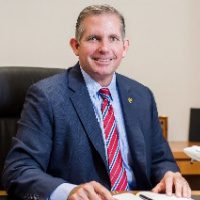
Jeff McCorstin, began his career at UPS as a peak season package driver in 1990 in San Diego, California and has served in his current role as President of UPS Global Freight Forwarding since January 2022. Prior to his current role, he was President of UPS Global Customs Brokerage & North American Freight Forwarding. Jeff has also served in a variety leadership positions across the globe, including President Asia Pacific Freight Forwarding for three years, and Senior Vice President of Global Freight Forwarding Air and Ocean Products from 2011-2013. Prior to this, he was named President of Europe Freight Forwarding where he was responsible for Air, Ocean and Road Freight Forwarding services in more than 120 countries and territories across Europe, the Middle East and Africa. In 2005 Jeff moved to Brussels to be the CFO of Europe, Middle East & Africa across all UPS business units. During his first 15 years, Jeff held a variety of positions in operations, industrial engineering, strategic cost and F&A across 6 different locations in the US. In 2005, he was named CFO for Europe, the Middle East and Africa. A native of Stockton, California, Jeff earned a bachelor’s degree in Electrical Engineering from the University of California and a Master’s of Business Administration in Finance from San Diego State University. Connect with Jeff on LinkedIn.
